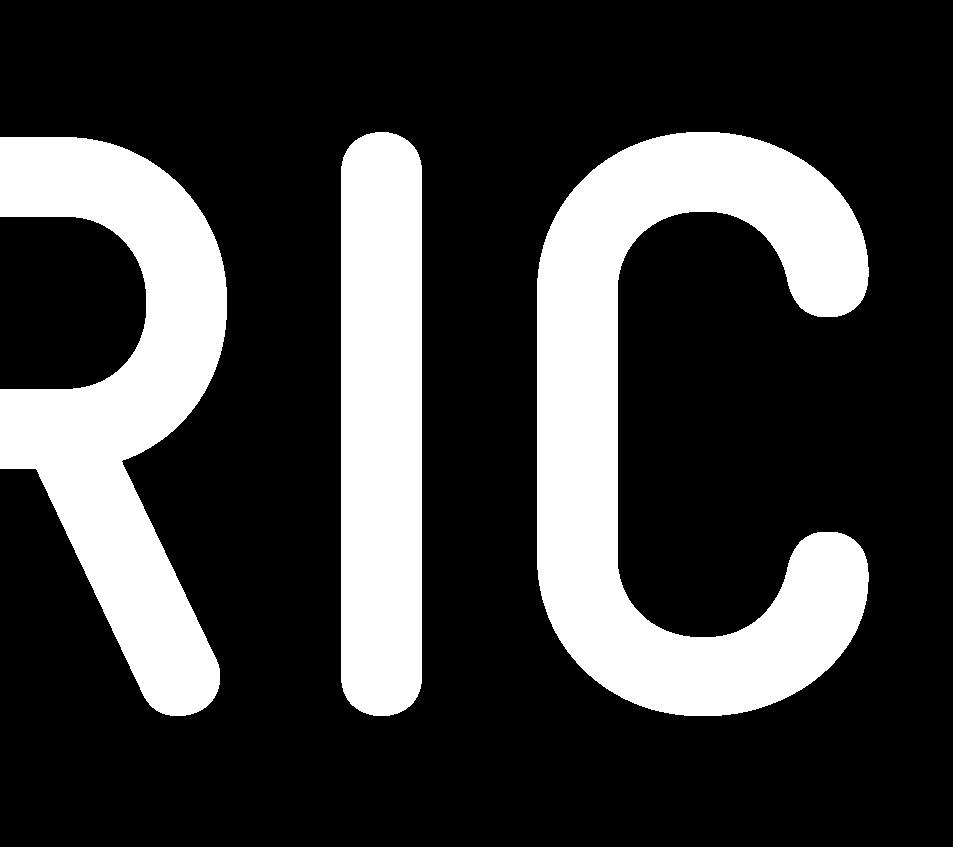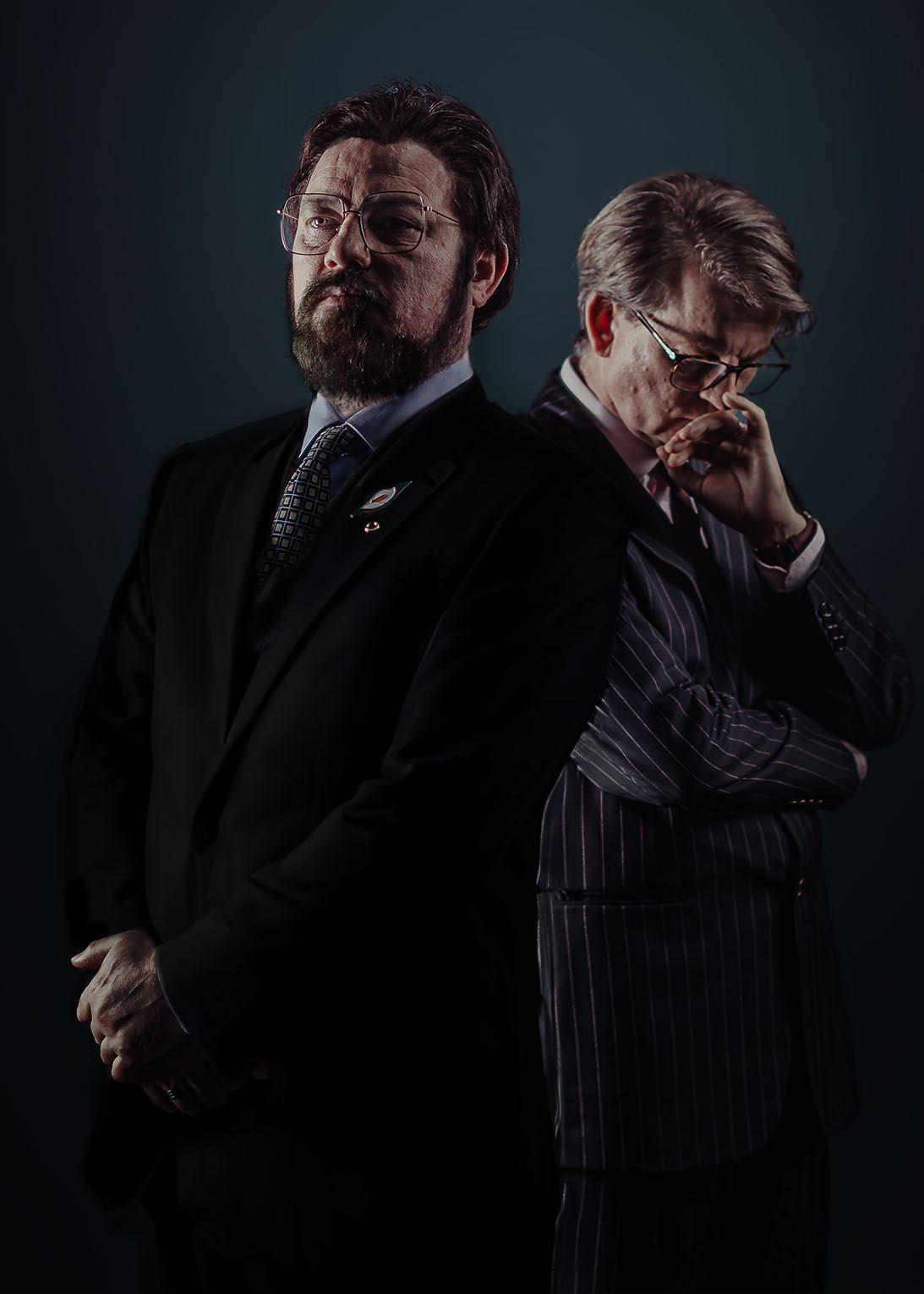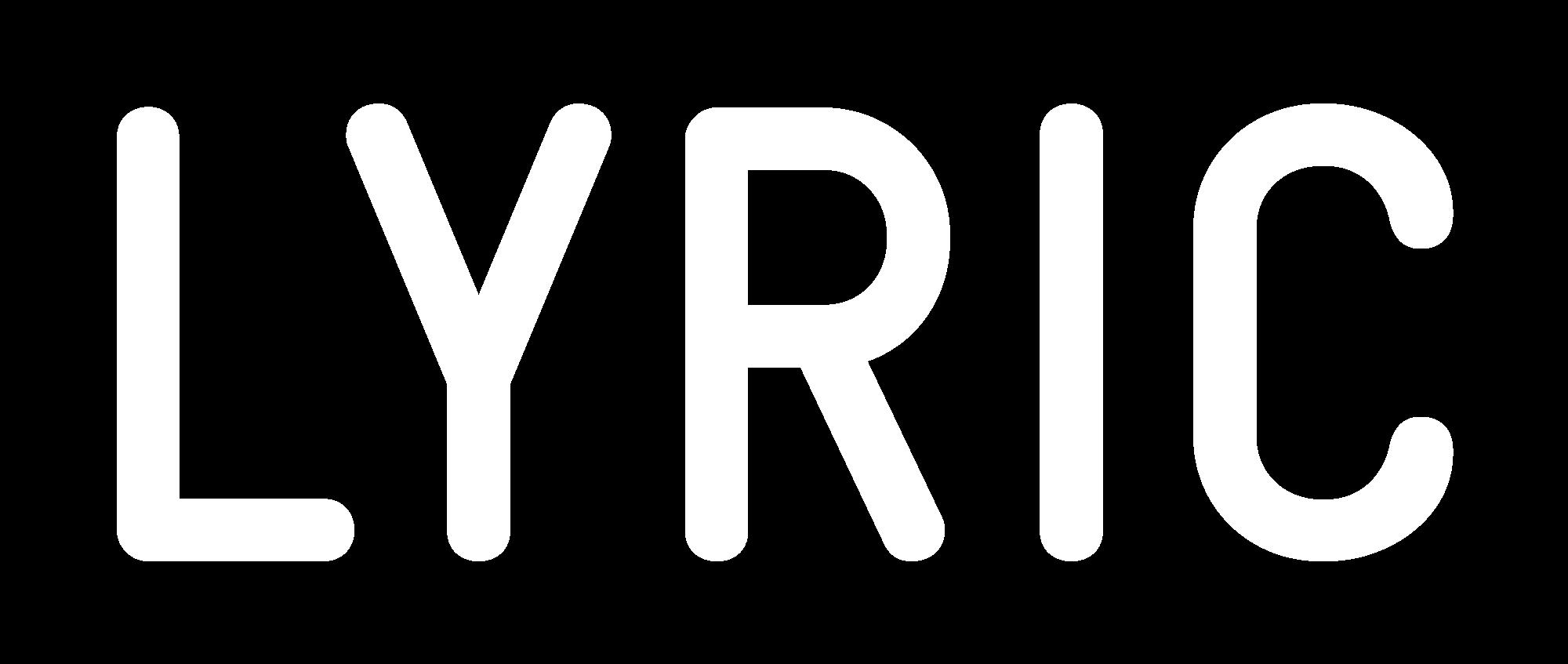


SPONSORED BY




“New horizons ahead” “New horizons ahead”






SPONSORED BY




“New horizons ahead” “New horizons ahead”


After an extraordinary run last year, we are delighted to bring back our production of Owen McCafferty’s Agreement, originally commissioned by the Michael Grandage Company.
Events that changed the course of history make great drama. The Greeks knew it, Shakespeare knew it, Netflix knows it. The theatre has always been an arena for investigation, debate and, sometimes, understanding. Public curiosity about what was behind an event drives the news and fuels drama. What happened to make the event? We love to experience the most complex motivations played out in the shadows beyond the television soundbite and camera lens. With the right actors, verbal ping-pong clashes will always be thrilling theatre.
Documentary theatre has a long tradition; some early Greek classics were about reporting events that just happened. Our knowledge about the incidents of The Iliad comes to us down the centuries because of a poet’s song. The Redscare McCarthy Inquiries of the 1950s were turned into a verbatim piece by the legendary theatre critic Eric Bentley called Are You Now or Have You Ever Been? Although if people think about a theatrical response to those hearings, they think of The Crucible by Arthur Miller.
In recent years, the rise of verbatim theatre (shows mainly based on transcripts of trials) have become popular. Witness the vital work of the redoubtable Nicolas Kent, former artistic Director of the Tricycle, now the Kiln. He produced far-reaching verbatim theatre that was essential to
our understanding (and sense of outrage), such as The Colour of Justice about the murder of Stephen Lawrence and Bloody Sunday, based on the Saville inquiry. These important theatre events provoked much discussion and helped focus minds on righting the wrongs discussed.
Probably the most famous documentary-type theatre of the modern age was Peter Weiss’s 1965 play The Investigation, which depicts the Frankfurt Auschwitz trials of 1963 -65. It takes place in a courtroom but isn’t a transcript or verbatim piece; using the structure of Dante’s Divine Comedy, it became an act of theatre, making the truth of Auschwitz vivid but not exploitative to audiences. Some things can’t be staged, only reported, and at that time, so soon after the War, a report of what led to the horrors of Auschwitz is more potent than a re-enactment of what happened there. In 1965 it was performed simultaneously in 14 different European productions, with star directors such as Peter Brook directing for the RSC in London and Ingmar Bergman directing in Stockholm. It ties into our genuine need to witness the complexities of our world. To bear witness, to understand what motivates other people and that may be why theatre was invented.
Owen McCafferty has crafted a fascinating play about an event 25 years ago that has shaped our time. His dialogue is rhythmical, sometimes harsh, occasionally funny, but always urgent. The play had a line, now cut, saying, “There were other people involved”. The play narrows in on a matter of days, hours, it doesn’t involve all the leading players, and there are
other stories to tell. Still, for now, Agreement concerns itself with a focused canvas and explores how you can find agreement with someone diametrically opposed to you. It’s an imagining, not verbatim, about an event that changed our history. One thing is certain the 25 years post the Good Friday/Belfast Agreement is very different from the 25 years that preceded it.
I want to thank the MGC for asking Owen to write this piece and supporting the early work of Director Charlotte Westenra on all her research and approach with this material. I also want to thank our funders the Arts Council, BCC and the wonderful Imagine Festival of which Agreement was part of in 2023. As the Lyric had its role to play in our recent history with the historic handshake between the late Queen and the late Martin McGuinness, I was delighted that we premiered Agreement here as a Lyric production precisely 25 years after the events of that time took place and that this production will now travel to the Irish Arts Centre in New York in April where it will have its North American premiere.
I hope you enjoy the performance.
JIMMY FAY EXECUTIVE PRODUCER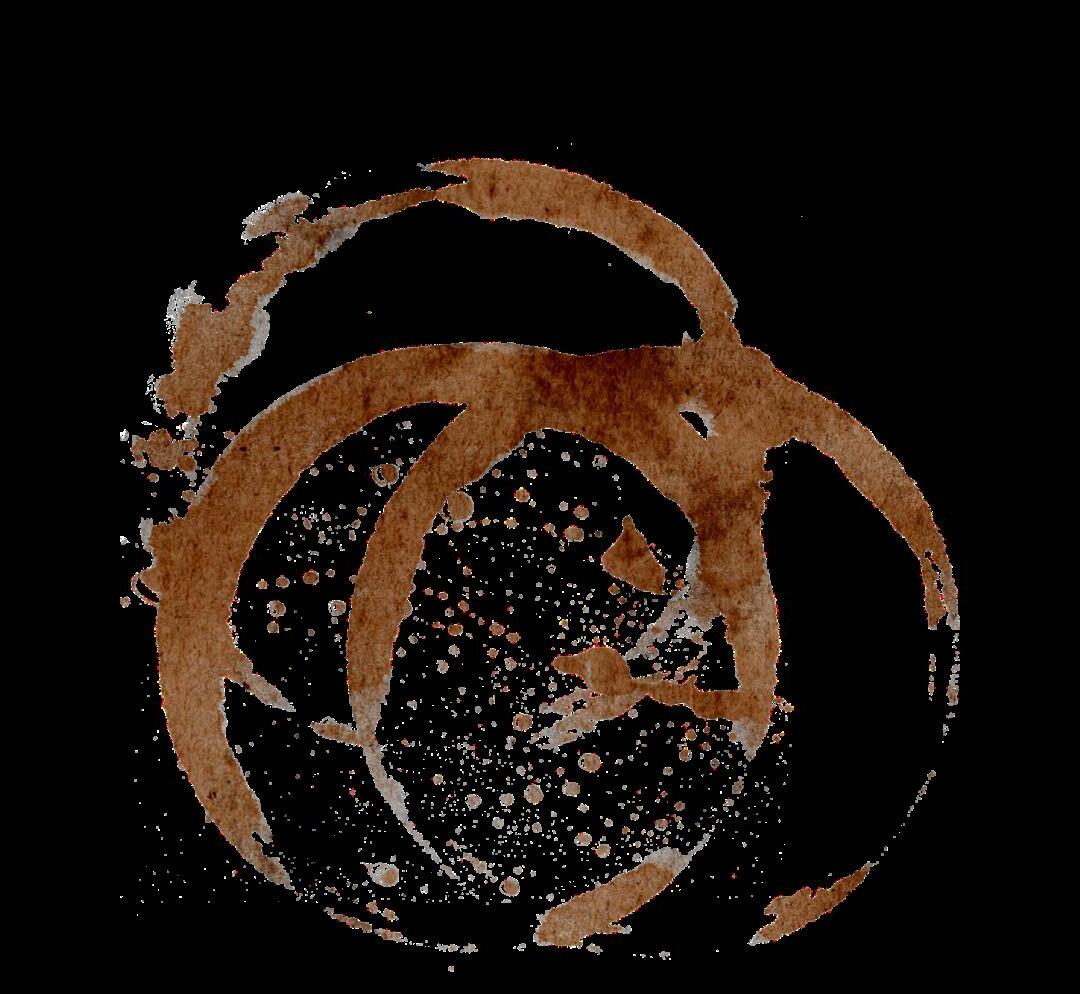

Acclaimed playwright Owen McCafferty has been writing for the stage for over 20 years. Based in Belfast, his work includes Quietly which was voted best play at the Writers’ Guild Awards 2013. His play Absence of Women was produced by the Lyric in February 2010 before transferring to the Tricycle Theatre in London. Shoot the Crow which was first staged at the Druid Theatre, Galway, was nominated for Best New Comedy at the Olivier Awards. Owen was the Lyric’s Artist in Residence in 2014, and he premiered Death of a Comedian (2015) at the theatre, which went on to run at Soho Theatre London and Abbey Theatre Dublin. Fire Below (A War of Words), a blistering and blackly comic play and a companion piece to McCafferty’s hugely successful play Quietly premiered at the Lyric in 2017, as a co-production with the Abbey Theatre. Owen’s first screenplay, Ordinary Love, won the Irish Film and TV Awards Best Film in 2020. We are delighted to work once again with Owen on this major new play, commissioned by MGC (Michael Grandage Company), which marks the 25th anniversary of the Good Friday Agreement.
“Negotiate – to discuss a matter with a view to a settlement or compromise. We all spend a good deal of our lives negotiating. It’s how we solve the problems that confront us in our relationships with others.
These negotiations always follow the same pattern. A problem arises and we blame the other and in return they blame us. There is a standoff. At this point a decision must be made. Do you continue to blame the other for the existence of the problem or do you realize you are part of the problem? The former leads to a breakdown in the relationship and the latter leads to negotiation – and the possibility of resolution.”
OWEN MCCAFFERTY WRITER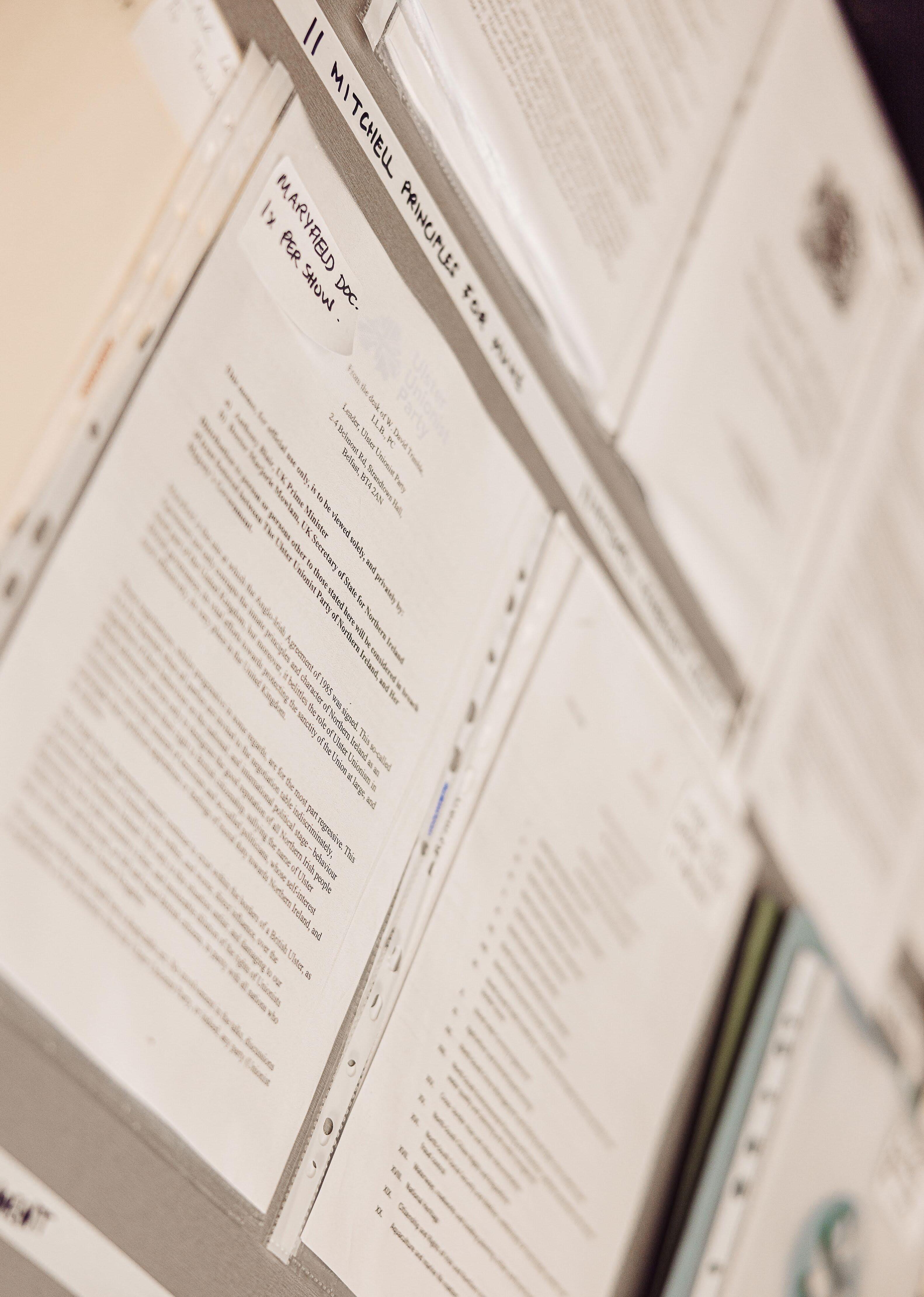
WE ALL SPEND A GOOD DEAL OF OUR LIVES NEGOTIATING. IT’S HOW WE SOLVE THE PROBLEMS THAT CONFRONT US IN OUR RELATIONSHIPS WITH OTHERS. “

Tell us a little bit about the play – this is all about the Good Friday Agreement isn’t it?
Yes it’s a play about the final four days leading up to the signing of the Good Friday Agreement, starting with the Unionists rejection of the Mitchell Agreement and Blair and Ahern’s arrival to the talks at Castle Buildings. It reminds us how hard won the agreement was. But it’s also broader than that. It’s a play about the nature of agreement, it’s a play about leadership and a play about political risk. The play is called “Agreement” and not “The Agreement” as it has resonance beyond it’s specific setting. In this way it has an international feel, as well as being a Belfast story.
How do you feel about the lack of women in the play, which of course is because they weren’t in the decision-making room at the time?
At Castle Buildings there were few women represented in the big discussions at the heart of the negotiations. Reports of how women were treated at the time have been sobering to hear. I read about how members of the Women’s Coalition decided that the best way to get a face to face meeting with Mo Mowlam was to wait for her in the ladies toilets. Women were being denied access to the rooms where it was
DIRECTOR OF AGREEMENT
DOWN TO TELL US ABOUT WHAT INSPIRED HER TO TAKE ON THE PROJECT, AND THE PROCESS OF TAKING THE SHOW ON TO THE LYRIC MAIN-STAGE

happening and in our play this is distilled into the character of Mo. What you see on stage is a woman with her phenomenal political mind, who has put in the graft for such a long time who is usurped from her desk when Blair arrives and bypassed by many. (The real Mo Mowlam was said to have said to Clinton “oh didn’t you know- I’m the new tea lady around here.”). The play shows that despite being sidelined she carried on… chivying, nudging, arguing, placating and pushing everyone forward a little at the time.
Seeing her trying to be heard in that group of men feels significant.
What role does theatre have in telling this story? Or similar political stories?
There’s something inherently theatrical about Agreement, as it shows these huge, complex, brilliant personalities trapped in a room with people they don’t like, and unable to leave until they either succeed and agree or fail and leave with the weight of that failure on their shoulders. The stakes are huge.
In rehearsals we talked about its parallels with classical drama - Agreement follows one action these people need to get the deal done, in one space - Castle Buildings and while it doesn’t follow a 24 hour period it still spans
a pretty short space of time - over 4 days with the clock ticking. It makes sense too that our characters talk to the audience. The audience is, after all, these politician’s constituents, and just as an actor needs an audience, a politician needs their electorate. It reminds us these politicians can make whatever deal they want in the room, but it will mean nothing without the support of the wider public
What do you want audiences to get from this play?
I hope that people who were there remember what it was like, and people who weren’t even born at the time of the greement learn something about our recent past. I hope our production shows the level that these political heavyweights were operating at and maybe it asks questions as to whether our politicians today would take such risks, or be prepared to compromise so completely. I hope too that it reminds an audience just how hard won the Good Friday Agreement was.
More than anything, I want to engage an audience with a political thriller that is also hugely funny, and celebrates the acting and creative talent here in Belfast, Northern Ireland and the rest of the UK.
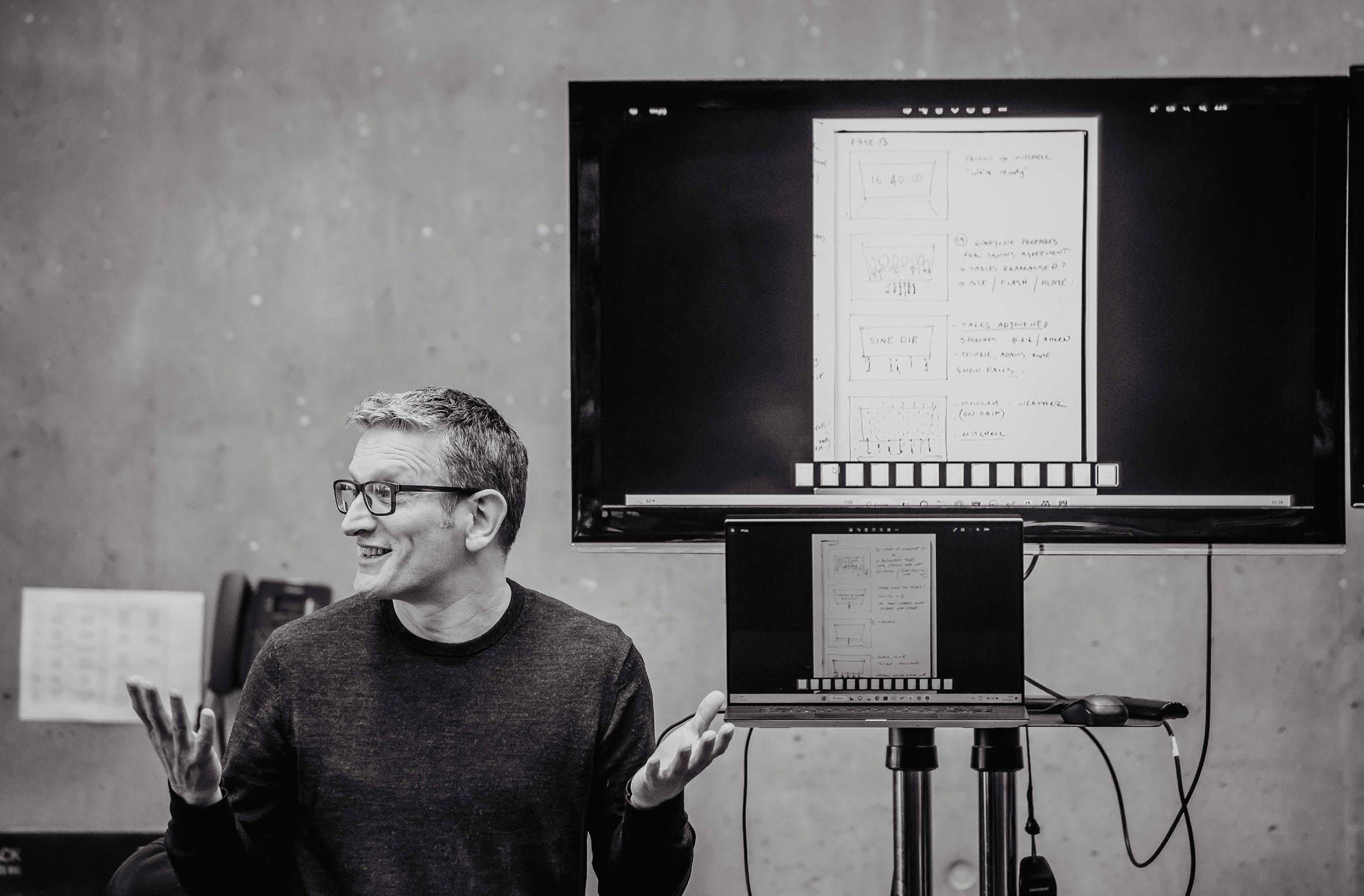
I was delighted to be invited to design this production celebrating the 25th anniversary of the Good Friday Agreement. The director, Charlotte Westenra, did a lot of research in preparation for the piece and she collaborated closely with Owen McCafferty who has skilfully brought the dry political subject matter to vivid life with a generous dollop of humour.
The actual negotiations took place in Castle Buildings in Stormont, a pretty drab 1970s office building. Different designers have different approaches, but, for me, there was no point in trying to recreate Castle Buildings on stage...that is best left to TV documentaries and film.
What we can do differently in theatre is allow the design to evolve directly from the action of the play. I started with the blank canvas of the Lyric stage: an open stage without walls or ‘scenery’ and made an
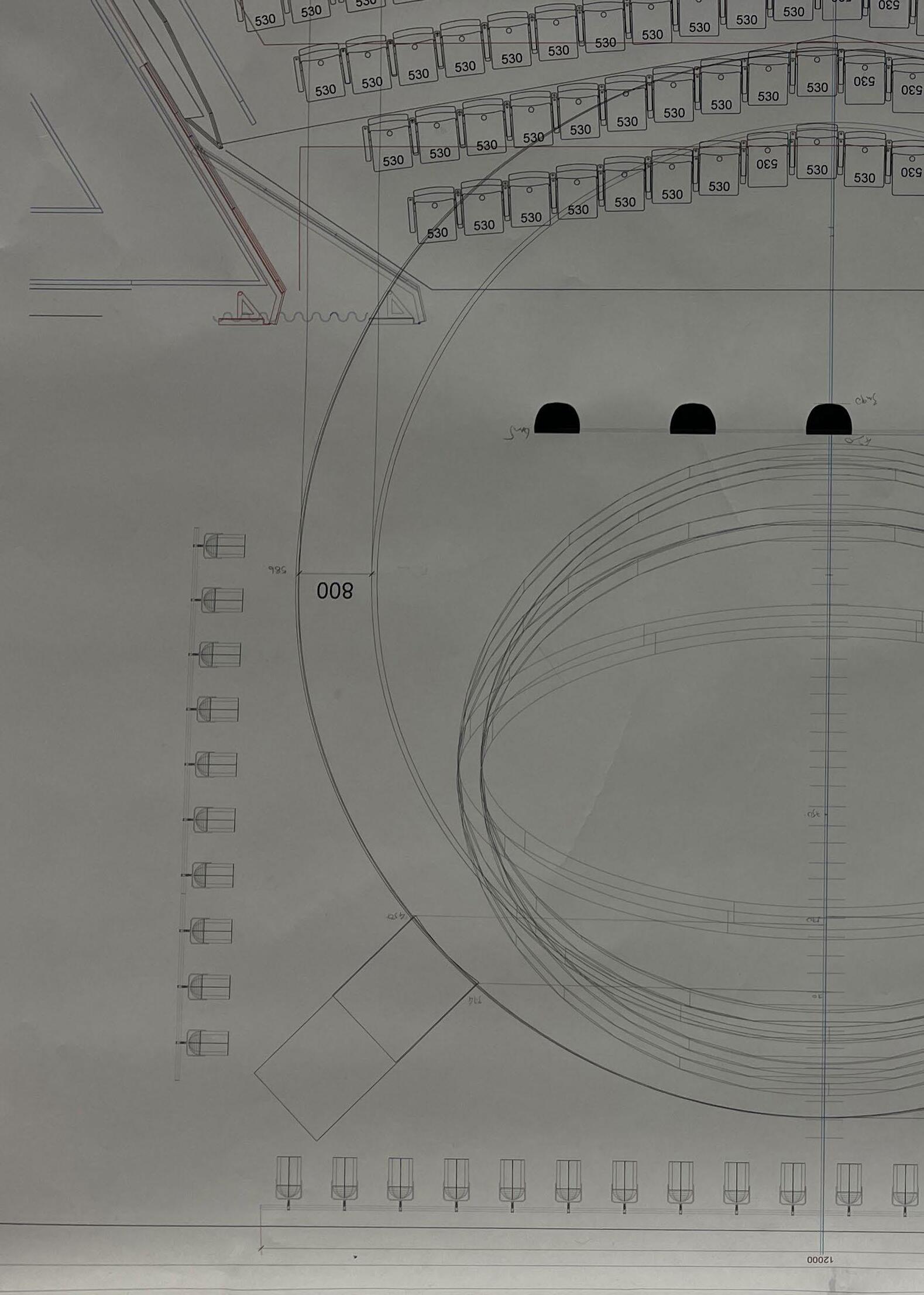
initial storyboard which mapped out the main action. Seeing all the offices at the same time felt important to us all as well as having a sense of the corridors between the offices - where a lot of the ‘casual’ conversations in the piece take place.
Initially, we considered using a revolve which would allow us to look at the various offices from different perspectives throughout the play. This would have involved static desks on a revolving stage… and may have been an easier option for the cast! For the final design we opted for moving desks on a static floor which has a much more immediate and visceral effect than the more predictable nature of a revolving stage. In this version, all the dynamics of the space can be taken advantage of by the director and the cast. So much so that as the characters get progressively more exhausted during the negotiations,
we can physically sense their exhaustion…it’s very real! There is deliberately no colour onstage...except for a few indicators of character in the costumes. The stage is a neutral platform for debate. It was important to avoid any misinterpretation of colour in the space. A sense of the world outside of Castle Buildings was also necessary so I included a ‘ring’ of stage lights to add to the feeling that the talks were taking place in the goldfish bowl of press and media coverage.
Another image which Owen has cleverly written into the piece is that of the bleak and changing Irish weather which ebbs and flows alongside the difficulty of the negotiations and culminates in a neat denouement based on the real events. To realise this, I designed a floating projection screen which can function as a barometer, a clock

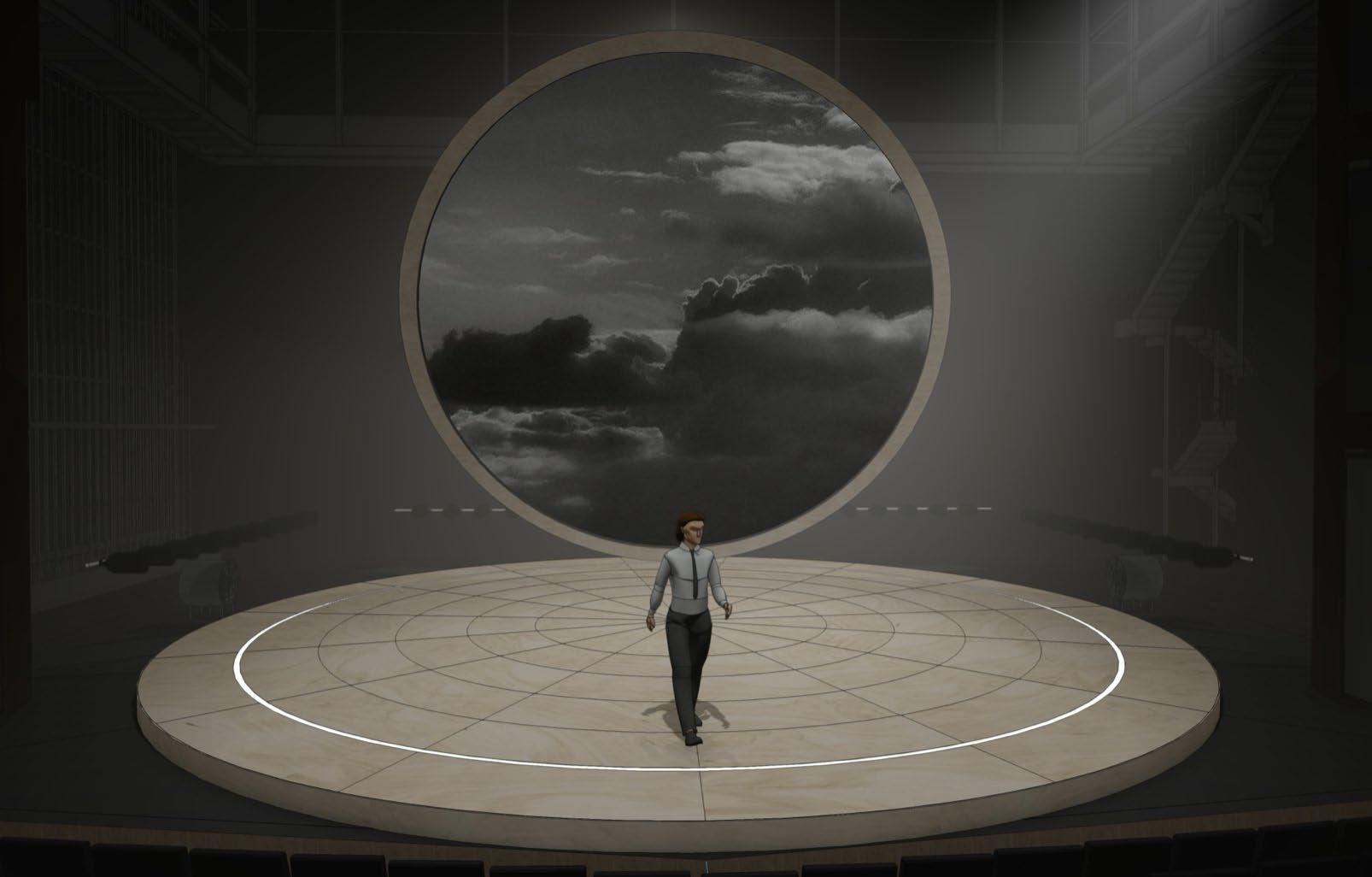
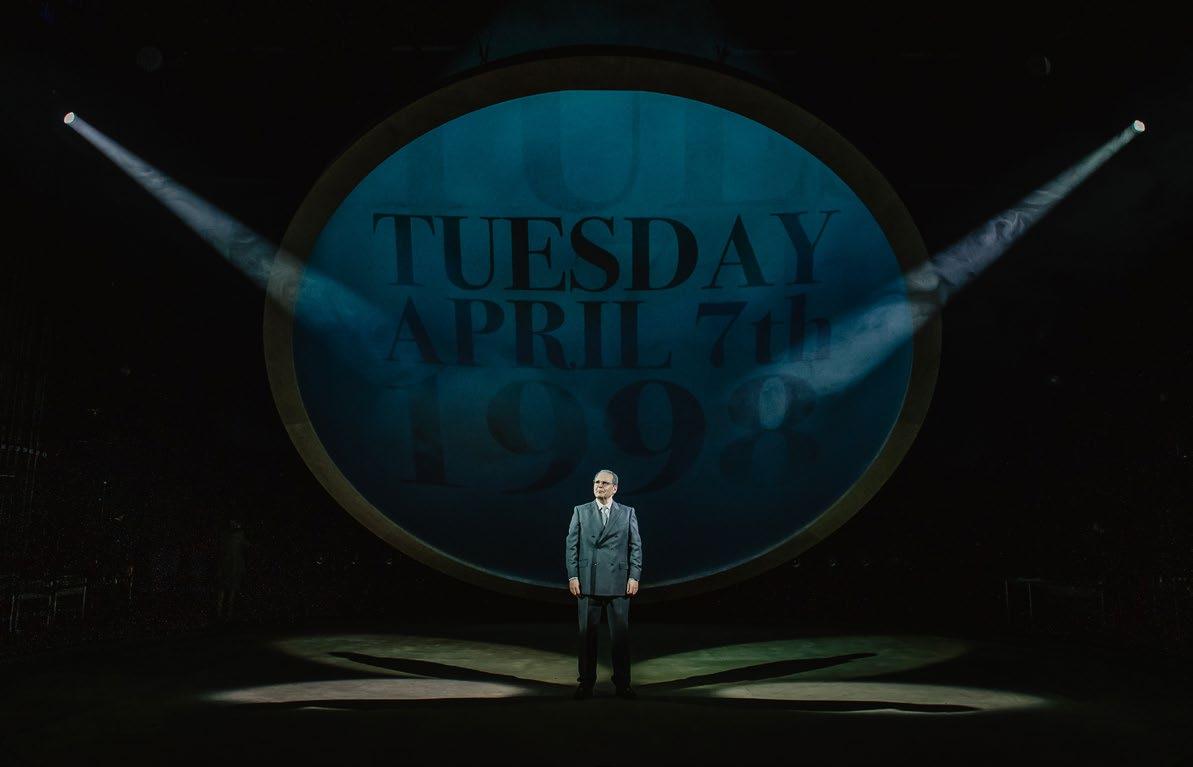
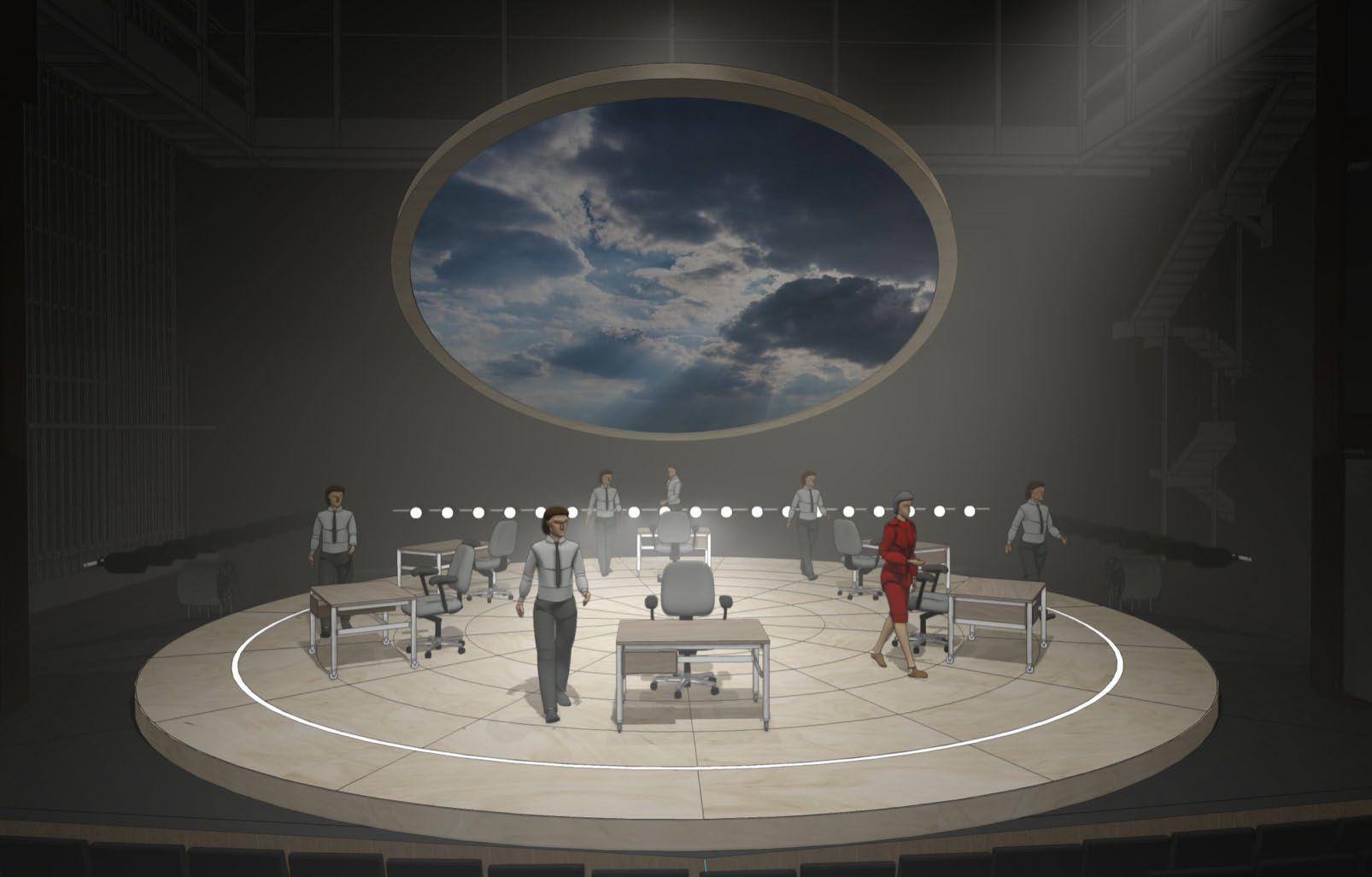

and can be used for text such as dates and infographics which help to clarify some of the main points of the agreement. Video designer Eoin Robinson created the visuals for the screen.
While the space is fairly abstract, the costumes are very real. The Lyric costume department have diligently sourced original 1990s clothes where possible to lend as much authenticity as we can to the very well-known characters.
After initially cursing us a little because they have so much pushing of furniture to do during the piece, the cast eventually embraced the design approach. I hope the audience enjoys watching the performance as much as we have enjoyed creating it with the fantastic team at the Lyric theatre.
CONOR MURPHY SET & COSTUME DESIGNER
DIFFERENT DESIGNERS HAVE DIFFERENT APPROACHES, BUT, FOR ME, THERE WAS NO POINT IN TRYING TO RECREATE CASTLE BUILDINGS ON STAGE... THAT IS BEST LEFT TO TV DOCUMENTARIES AND FILM. “ “


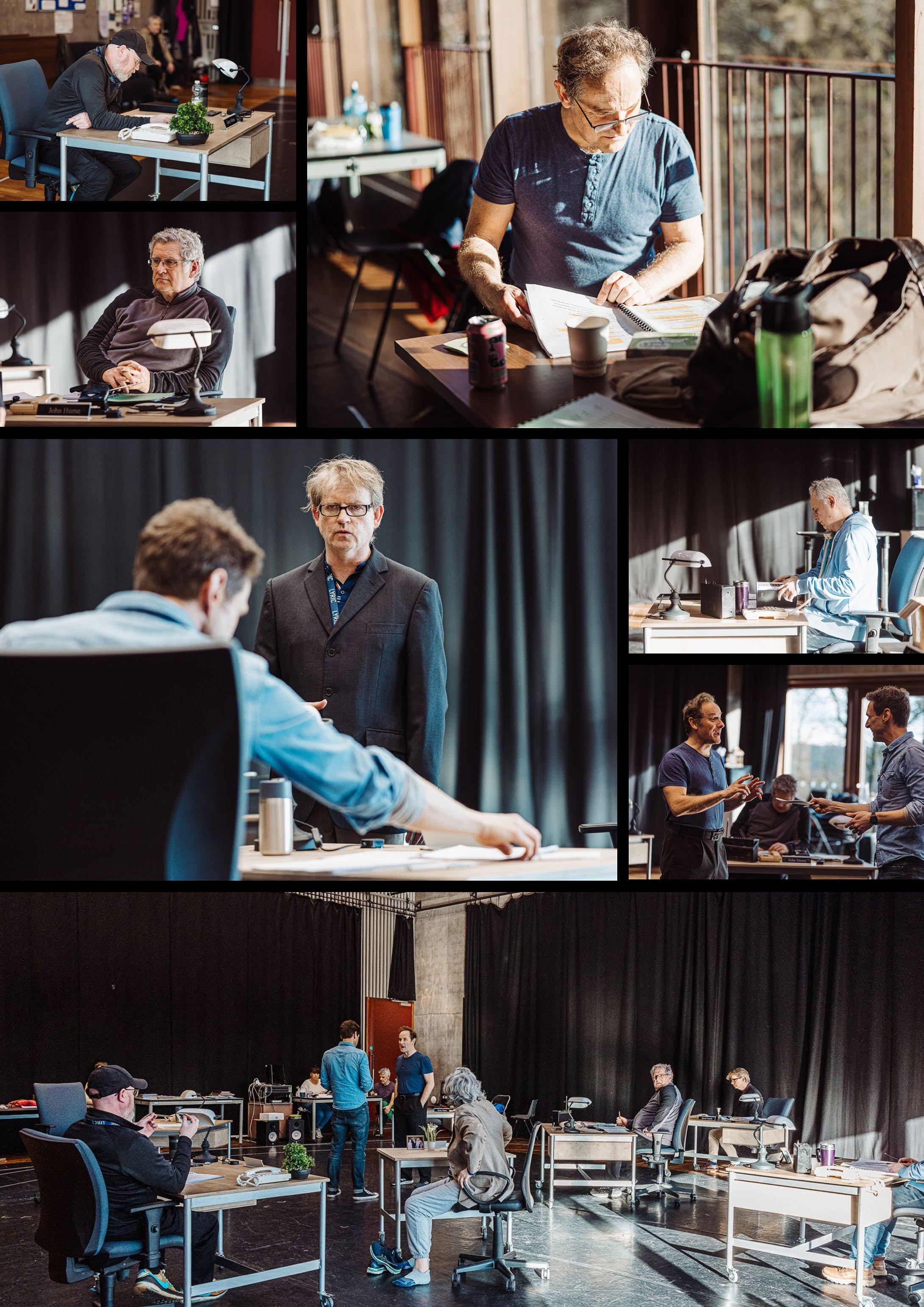


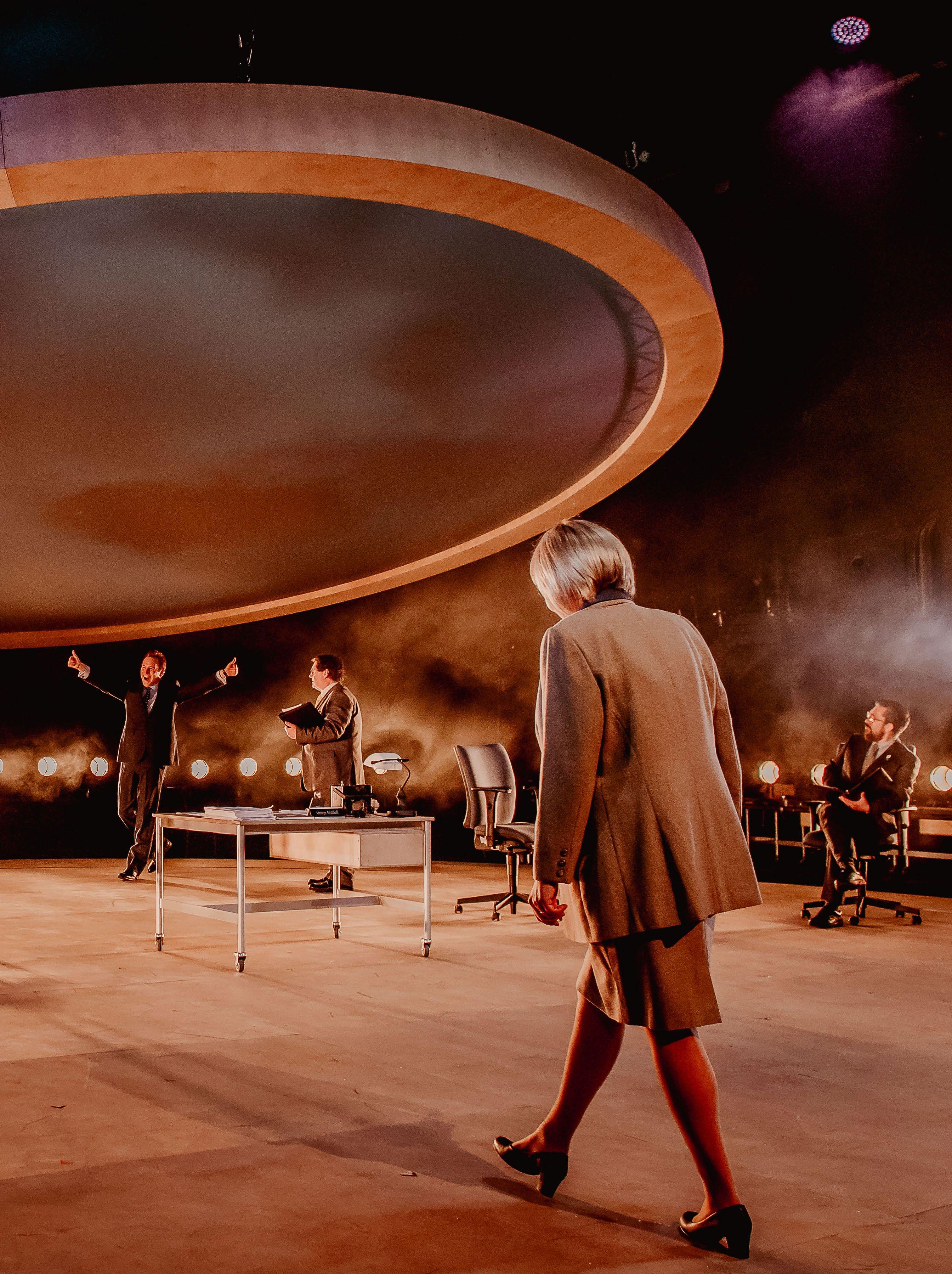
The Lyric Theatre is a not-for-profit theatre that is proud to be a charity. Two-thirds of our income is self-generated through ticket sales, and from support from our Friends of the Lyric, the business community and other funders. This support is vital and helps to fund a number of projects off the stage including: learning programmes for young people, our sustainability programme, protecting our digital archives, and the development of new work.
Theatre has the power to transform people and communities. We were delighted to be crowned The Stage UK’s Theatre of the Year 2023 in recognition of our work with young people in the community and in education; in developing new audiences and nurturing new writers.
By supporting the Lyric today, you are helping make this work possible.
Partner with us as a Corporate Star or an American Friend of the Lyric
Starting at just £/$2,500, partner with the Lyric Theatre today to support our work onstage and our work with young people and communities across Northern Ireland. Whether you are seeking to entertain clients, host events, hire spaces, develop your staff or support the wider community, becoming a Corporate Star of the Lyric can help you with a range of amazing benefits.
To learn more about how you can support the work of the Lyric Theatre please contact Claire Murray – Head of Development: clairemurray@lyrictheatre.co.uk.
The Lyric’s production of Agreement has been supported by Tourism Ireland, FinTrU and Queen’s University, along with the Lyric’s principal funders Arts Council NI and Belfast City Council, and by Culture Ireland, Jerome Greene Foundation and Invest NI in the US.

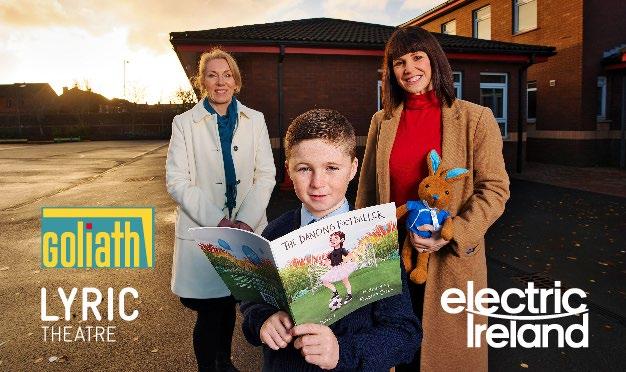

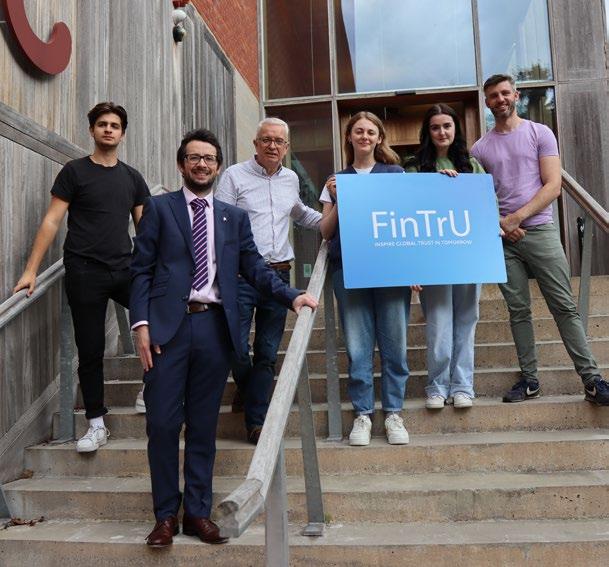


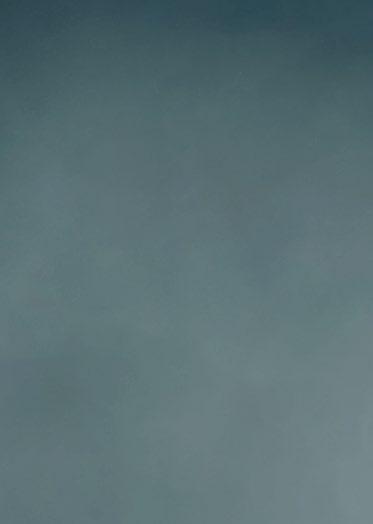
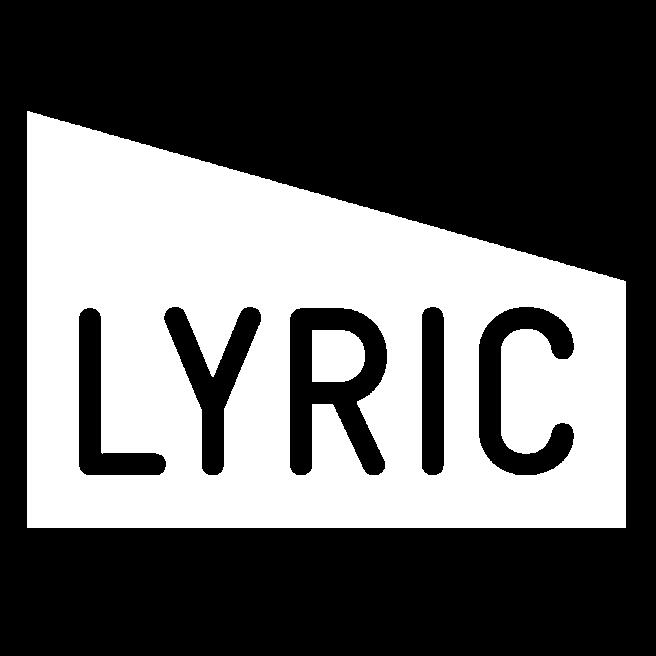


EXECUTIVE PRODUCER
SENIOR PRODUCER
CASTING DIRECTOR
PRODUCTION CO-ORDINATOR
HEAD OF PRODUCTION
PRODUCTION MANAGER
ASSISTANT PRODUCTION MANGER
COMPANY STAGE MANAGER
STAGE MANAGER ON BOOK
ASSISTANT STAGE MANAGER
STAGE MANGER
TECHNICAL MANAGER
SENIOR PRODUCTION TECHNICIAN
CHIEF LX AND PROGRAMMER
TECHNICIANS
Aimee

SET CONSTRUCTION
LEAD SCENIC CARPENTER
SCENIC CARPENTERS
WORKSHOP ASSISTANT
SCENIC CONSTRUCTION APPRENTICE
COSTUME SUPERVISORS
COSTUME ASSISTANTS
HAIR & MAKE-UP
WIGS
PHOTOGRAPHY / VIDEOGRAPHY
GRAPHIC DESIGNER
PUBLIC RELATIONS / PRESS
DEVELOPMENT PARTNER
Rachael Harriott Communications
Michael Grandage Company
With Thanks to Anne McNulty, Bertie Ahern, Alastair Campbell & Sir Jonathan Phillips
Special Thanks to Paddy Rossmore
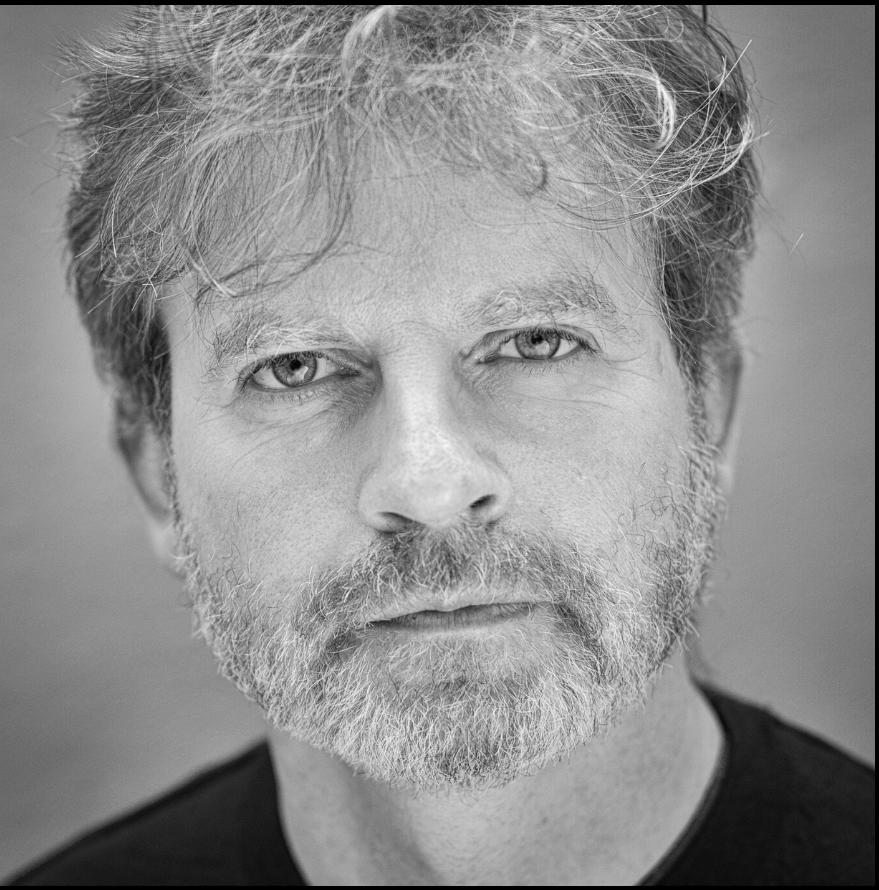

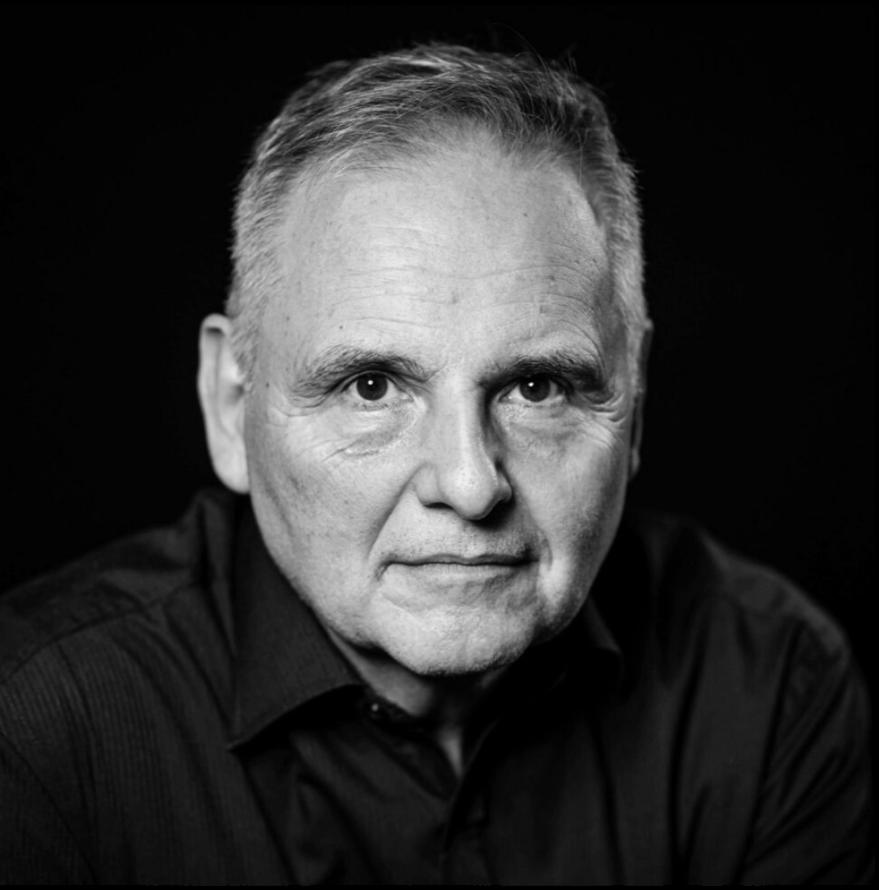
Ruairi
Ruairi has just moved back to Belfast after living and working in London for 25 years.
He has worked off Broadway in All That Fall with Michael Gambon and Eileen Atkins. In the West End with Philadelphia Here I Come and All That Fall. Also in London at The Royal Court, The National Theatre, The Donmar Warehouse, The Bush, The Southwark Playhouse in productions such as Gary Mitchell’s Trust, Brian Friel’s Molly Sweeney, Frank McGuiness’ Peer Gynt, Willy Russell’s Educating Rita and Owen McCafferty’s Scenes From The Big Picture. He was also The Player King to Benedict Cumberbatch’s Hamlet at the Barbican.
Lyric Theatre Credits include: Reverend Hale in the Crucible which re-opened the theatre. The Lyric & Abbey coproduction of Owen McCafferty’s Fire Below and most recently in his own highly acclaimed one person show Lies Where it Falls which he will be relaunching later in the year.
TV and film credits include: Downton Abbey, Silent Witness, Waking The Dead, The Suspicions Of Mr Whicher, Best, Supergrass and The Catherine Tate Show.
He has won 3 Earphones awards for his work on Audiobooks and has been nominated for a British Theatre/ Sunday Times award for his performance in Philadelphia Here I Come. He also co-directed and produced the award winning film Mind The Time with Stage Beyond Theatre Company.
For the Lyric Theatre: Dockers; Groupthe Musical & La Chunga.
Other theatre includes: Cyprus Avenue (Royal Court, Abbey, Dublin/MAC, Belfast/Public, NYC); Re-Energize (Derry Playhouse); The Titanic Boys (Grand Opera House, Belfast); Group the Musical (Edinburgh Fringe Festival); Chronicles of Long Kesh (Tricycle/ Waterfront Hall/CQAF/Northern Ireland tour); Antigone (Waterfront Hall); Scenes from the Big Picture (Waterfront Hall/National); Don Juan in Soho (Donmar); The Wrong Man (New Strung/Edinburgh Fringe Festival); The Duke of Hope (Tinderbox); Energy (& Derry Playhouse); Mojo Mickybo (UK tour); Militiaman - One Man Show (Crescent Arts/Partisan) & Alice’s Adventures in Wonderland (Kabosh/An Grianán).
Television includes: Hijack (Apple TV+); FBI International (CBS); The Capture (Heyday/BBC); Das Boot (Bavarian Fiction); The Terror (AMC); The Rack Pack (Zeppotron); The Musketeers (BBC); The Fall (Artists Studio/BBC); Omagh (Kirwan Prods); Sunday (Box TV/C4) & Eureka Street (BBC).
Film includes: The Return (Ithaca/ Picomedia); Ballywalter (Empire Street); Nowhere Special (Picomedia); Jonjo Mickybo (Working Title) & The Goldfish Bowl (Cinemagic).
Richard Croxford as GEORGE MITCHELL
Richard Croxford’s career has included acting, writing and directing for theatre companies locally nationally, internationally and London’s West End on three occasions. Favourite acting roles for the Lyric include Harrison Howell in Kiss Me Kate, Beadle Bamford in Sweeney Todd, Tiger Brown in Threepenny Opera, Shylock in Merchant of Venice, Lord Goring in An Ideal Husband, Chris Keller in All My Sons, Dracula in Dracula, Heathcliff in Wuthering Heights and Pip in Great Expectations.
In the late 90s Richard started moving in to directing theatre. He took over as artistic director of Replay Productions in 2000 producing work for children and young people and then the Lyric Theatre, Belfast in 2008 overseeing the launch of the new theatre’s artistic programme until the end of 2013.
Most recently Richard has been working as a freelance actor again for TV (Bloodlands, Heaven, Mother’s Day, Mrs. Wilson and Soft Border Patrol) and in feature films (The Quarry , Trautmann and the blockbuster Dungeons And Dragons as Lord Neverember.) He is also a busy voice over artist and is regularly heard doing commercials on U105 and Ridddle for Facebook.
Richard was seen last year at the Lyric as drag queen Sasha Supper in Replay’s Mirrorball. He is delighted to be reprising his role of Senator George Mitchell and was hugely honoured to have met the Senator last year after he watched the production of Agreement.
 Chris Corrigan as GERRY ADAMS
Conaghan as DAVID TRIMBLE
Chris Corrigan as GERRY ADAMS
Conaghan as DAVID TRIMBLE
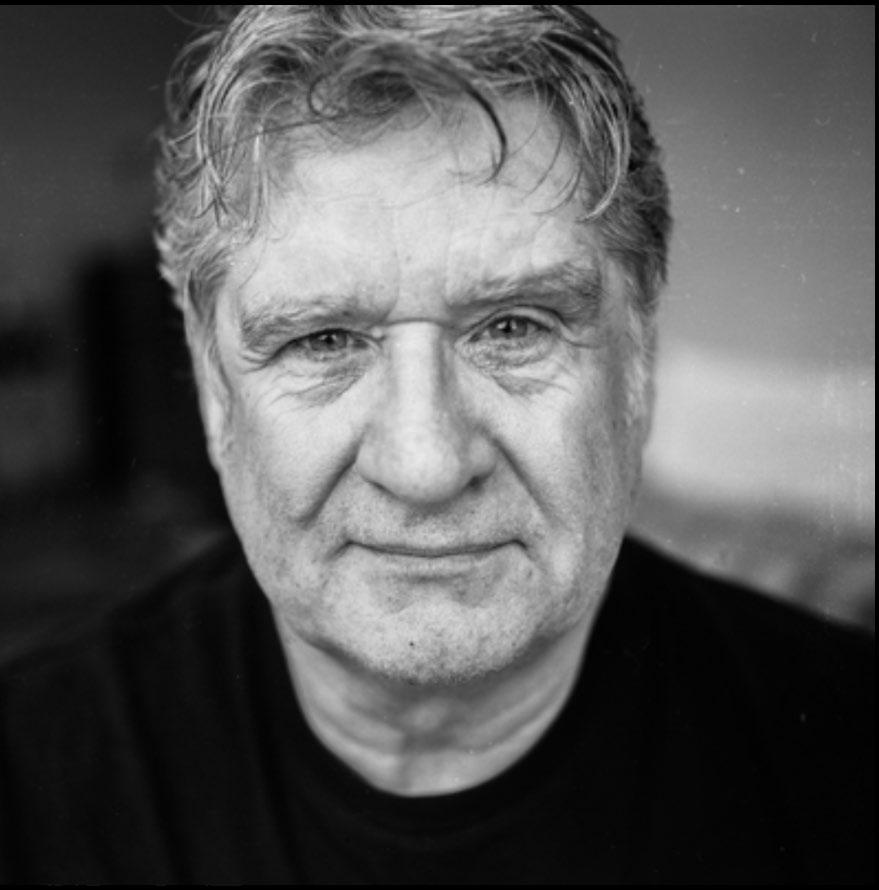
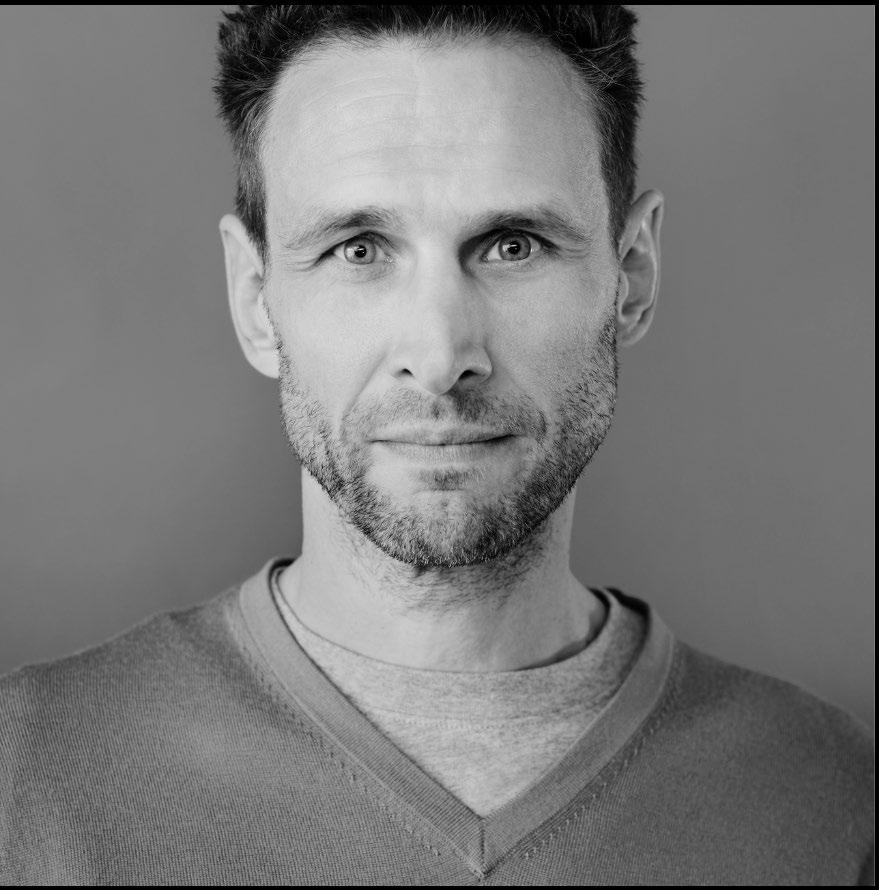
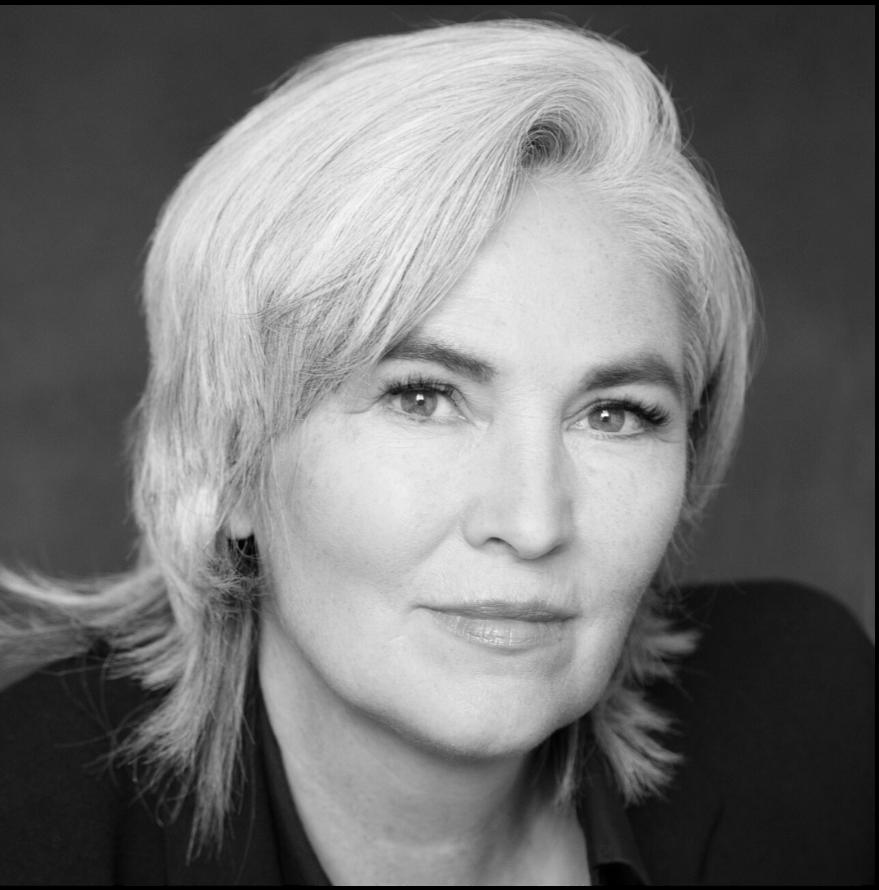
Dan is an actor, director and writer. Recent television includes Three Families, Ruby, Shopped, Rat, Paddy Raff, To Be Frank…Carson, Rello, Bloodlands and the upcoming second series of Blue Lights. On stage –Agreement, The Boat Factory (UK/ Ireland/Brussels/NYC) and Frank Carson: A Rebel Without a Pause (Edinburgh Fringe/Irish tour – also subject of a BBC documentary).
He recently wrote and directed Belfast Blitz - It’ll Never Happen Here (SSE Arena/W5); he directed Cinderella, Snow White (Dundee) and Defending the Caveman (Irish tour). For Sheridan Productions one woman shows Mrs Jones’s Diary, Nobody Puts Bernie in the Corner, Absolutely Flabulous (Irish tour ’24). For Nuala McKeever Truth, Love or Promise (Irish tour ‘24).
Dan has presented/co-authored numerous television and radio documentaries. Served as trustee of Arts and Business NI and is a passionate advocate and lobbyist for the Arts. He served on the Board of The Lyric, Actors’ Equity, as Associate Artist for Prison Arts and for 14 years as a weekly columnist for the Sunday Life Newspaper. He is Patron of Bruiser Theatre Company and regularly lends support to Youth Justice Agency, Probation Board NI, NIACRO, the Integrated Education Fund and the Carson Arts Bursaries.
Theatre credits include: God of Carnage (Lyric Theatre, Hammersmith); Small Island, The Voysey Inheritance and The Mandate (National Theatre); Julius Caesar, As You Like It, Titus Andronicus and The Heart of Robin Hood (RSC); Butley, Ghosts, Another Country, Taken at Midnight, Taking Sides and Collaboration (West End); Candida (Orange Tree Theatre); The Bay at Nice (Menier Chocolate Factory); The Master Builder (Old Vic Theatre); R+D (Hampstead Downstairs); If Only and Anthony and Cleopatra (Chichester Festival Theatre); The Libertine (Glasgow Citizens Theatre); Thursday (ETT/Adelaide Festival); The Jew of Malta (Almeida); The Comedy of Errors and As You Like It (Sheffield Crucible); Five Finger Exercise (Salisbury Playhouse); Cyrano de Bergerac and Our Country’s Good (Nuffield Southampton); Hamlet and The Merchant of Venice (Birmingham Rep) and The Tempest (New Vic).
TV and Film credits include: Endeavour, The Trial of Christine Keeler, Tutankhamun, The Honourable Woman, Foyle’s War, The Passion, Who Gets the Dog, Midsomer Murders, A Very British Sex Scandal, Backdraft 2, Dragonheart: Battle for the Heartfire, Atonement and Virtual Sexuality.

Awards: 2000 Ian Charleston Award Nomination; 2001 Ian Charleston Award Nomination.
Lyric Theatre Credits include: Wonderful Tennessee, MacBeth & Sadie
Other theatre work includes: Titanic (MAC); Meeting at Menin Gate (Green Shoot Productions); Cyprus Avenue (Royal Court/Abbey Theatre); The Crucible, Angels in America, In a Little World of our Own, The Wild Duck, The Bacchae of Bagdad, The House of Bernarda Alba, East Pier, Perve, Terminus, Curse of the Starving Class, The Great Hunger (Abbey Theatre); Sive, Antigone (Druid Theatre); Love and a Bottle, The Way of the World, Pentecost, The Whisperers, The Bonefire, Life is a Dream (Rough Magic); Poor Beast in the Rain, Anna Karenina, Dancing at Lughnasa, The Real Thing, Hedda Gabler ( Gate Theatre); G.O.D (Bitter like a Lemon); Sham (Guna Nua); Our Lady of Sligo (Out of Joint/RNT).
Television includes: Blue Lights Seasons 1 and 2 ( BBC/Two Cities Television); Line of Duty Seasons 2 and 5 (BBC); Red Rock Seasons 1 to 3 ( TV3/Element Pictures); At Water’s Edge ( BBC); Six Degrees (BBC NI); Making the Cut (RTE).
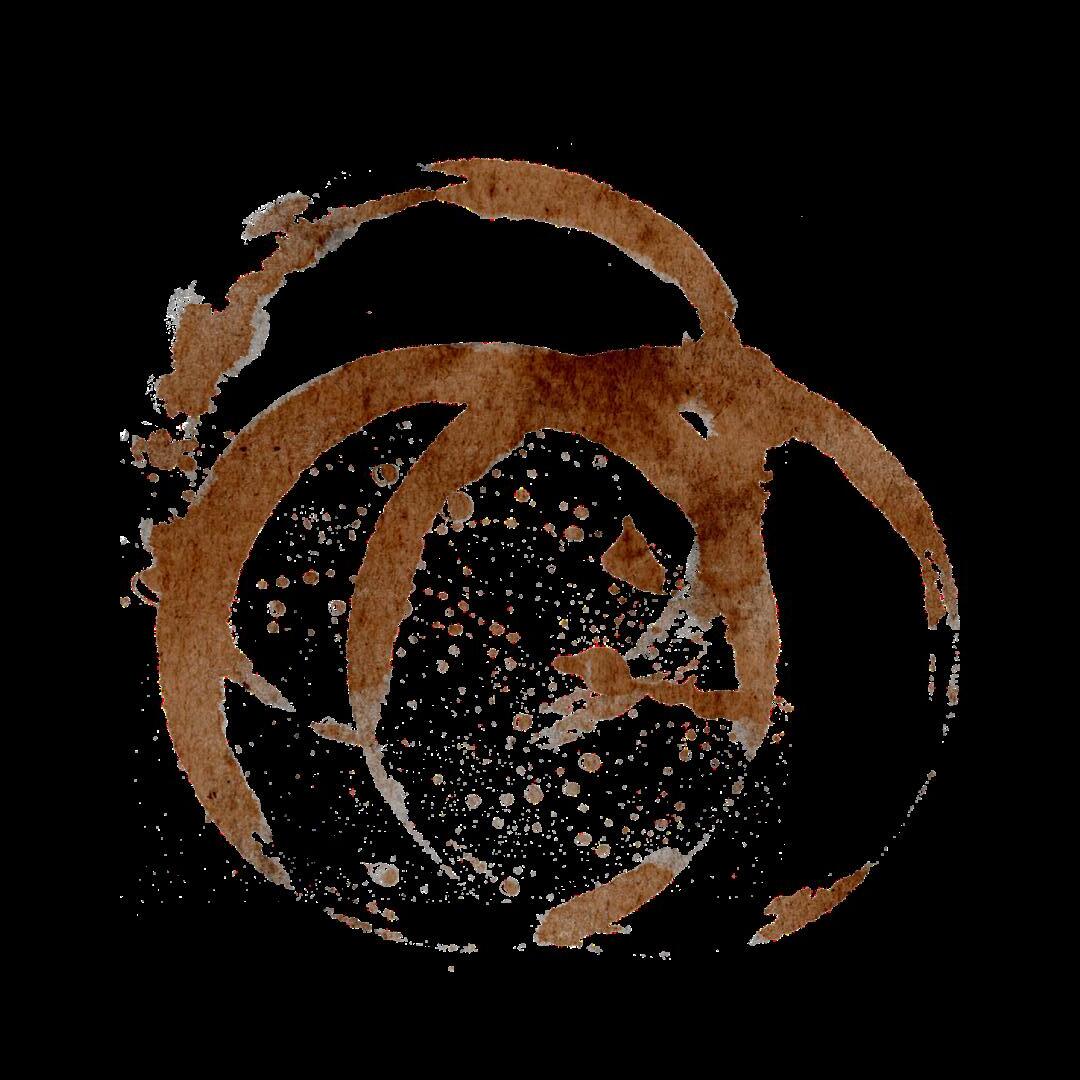
Film includes: Peat (Short film, Escape Pod Media); Baltimore (Samson Films); The Teacher (Cocoon Films/BFI); Dead Shot (Upper Street and Parallel films); Boys from County Hell (Six Mile Hill/ Blinder Films); End of Sentence (Samson Films); Five Minutes of Heaven (BBC/ Element Pictures); Evelyn (First Look International); Gold in the Streets (Ferndale Films); Ailsa (Temple Films).
Martin Hutson as TONY BLAIR Andrea Irvine as MO MOWLAM Dan Gordon as JOHN HUME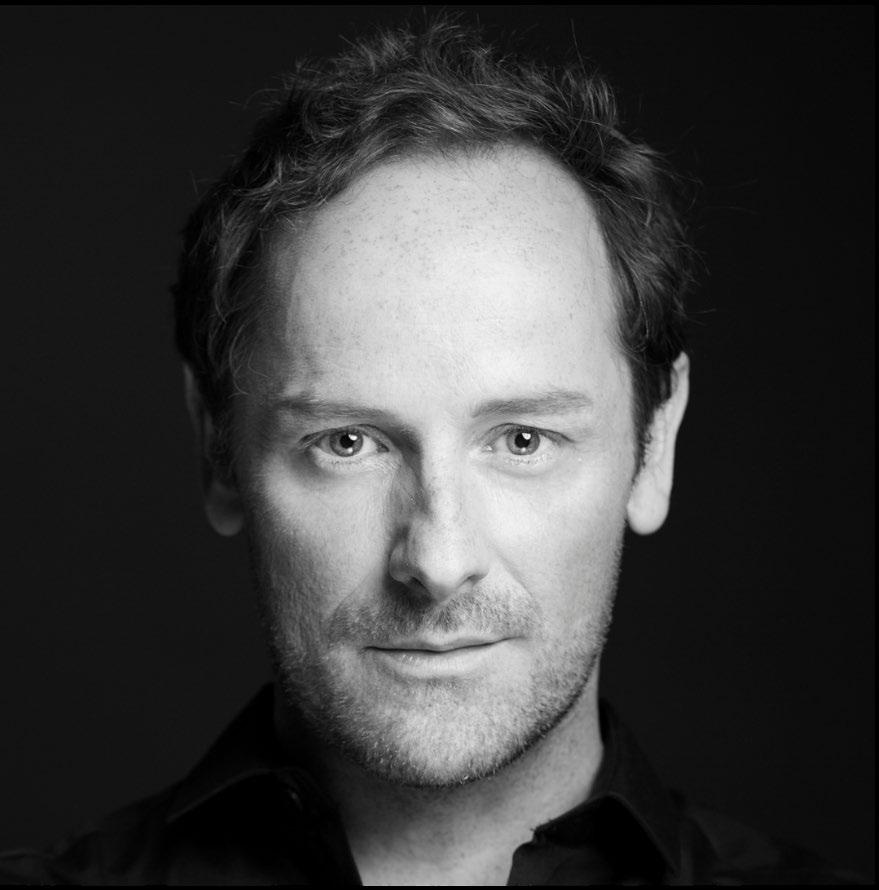
Ronan Leahy as BERTIE AHERN
At The Lyric: Living Quarters, Translations, Agreement.
At The Abbey: Translations, Oedipus, Drum Belly, King Lear, Curse of the Starving Class, Macbeth, The Resistible Rise of Arturo Ui, Romeo and Juliet, Henry IV, Da, Observatory, At Swim Two Birds, By the Bog of Cats, The Doctors Dilemma, The Well of the Saints, The Corsican Brothers, Observe the Sons of Ulster and Philadelphia Here I Come! (Abbey).
Other theatre: Quake (Once Off); Least Like the Other (INO); Staging the Treaty (Anu); Blackbird (Four Rivers); Signatories, Borstal Boy (Verdant); Invitation to a Journey (GIAF); Wuthering Heights, An Enemy of the People, Festen, All my Sons (Gate); Hecuba, The Effect, The Critic, Travesties, Life is a Dream, Solemn Mass for a Full Moon in Summer (Rough Magic); The Colleen Bawn, Gentrification (Druid); The Winter’s Tale, The Hairy Ape (Corcadorca); Inside the GPO, Tiny Plays, The End of the Road, Whereabouts, The Flesh Addict (Fishamble).
Television: The House Across the Street (Ch 5); Amber (RTE); Single Handed (Element); Roy (Jam); The Catalpa Rescue (Perpetual); Proof (Subotica) and Amongst Women (BBC/RTE).
Film: The Flag (Treasure); Gridlock (Failsafe); Out of Innocence (Defiant), Pursuit (An Pointe), The Break (Stanley’s Deathpark), Priest (Magna), Batman Begins (Warner Bros).
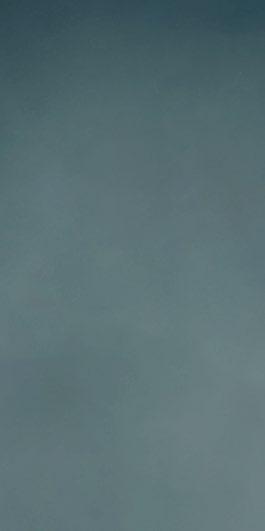 Owen McCafferty WRITER
Owen McCafferty WRITER
Over the past thirty years Owen McCafferty’s plays have been performed worldwide and have won numerous awards. Previous work includes: Titanic: Scenes from the British Wreck Commissioner’s Inquiry, 1912 (MAC, Belfast and Tricycle Theatre, London); The Absence of Women (Lyric Theatre, Belfast and Tricycle Theatre, London); Days of Wine and Roses (Donmar Theatre, London); Closing Time (National Theatre, London); Shoot the Crow (Druid Theatre, Galway); Mojo Mickybo (Kabosh, Belfast); Scenes from the Big Picture (National Theatre, London), which won the Meyer-Whitworth, John Whiting and Evening Standard Awards; Quietly (Abbey Theatre, Dublin), which won the Writers’ Guild Award for Best Play; Death of a Comedian (Abbey Theatre, Dublin, Lyric Theatre, Belfast, Soho Theatre, London); Fire Below - A War of Words (Lyric Theatre, Belfast, Abbey Theatre, Dublin).
The award winning Ordinary Love is Owen’s first screenplay, Ordinary Love won the Irish Film & TV Awards Best Film for 2020. He is currently writing a new screenplay Breathing
Charlotte Westenra DIRECTOR
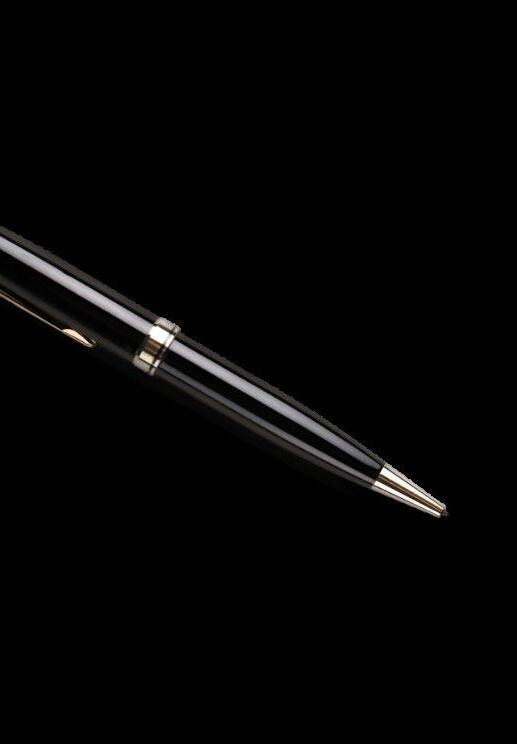
She co-wrote the synopsis for Christopher Wheeldon’s ballet Strapless for the Royal Opera House. Agreement won best director, best play and best new play at the 2023 BWW Ireland Award, and it was nominated for Best New Play at the UK Theatre Awards 2023. The London Lit Festival in 2021, which featured her film A Room of One’s Own, was highly commended at the FutureBook Event Award. The Wicker Husband was the winner of the inaugural MTI Stiles & Drewe Mentorship Award. It was also selected for NAMT Festival of New Musicals in New York in 2018.
Conor Murphy SET & COSTUME DESIGNER Conor was born in Omagh, studied theatre design in London and gained an MA in scenography in Holland.
Recent designs at the Lyric include Burnt Out, Propaganda and Agreement. His designs for theatre include The Government Inspector, The Resistible Rise of Arturo Ui, Woman and Scarecrow and The Crucible (Abbey Theatre, Dublin); The Birthday Party and Juno and the Paycock (Bristol Old Vic) and Richard III (West Yorkshire Playhouse).
Charlotte trained at Augusto Boal’s Centre of the Theatre of the Oppressed in Rio de Janeiro and at the Donmar Warehouse, as Resident Assistant Director, where she went on to direct Kiss of the Spider Woman and Lower Ninth (for Donmar @ Trafalgar Studios) and was associate director on their West End transfers of Frost/Nixon and Piaf
Credits include: The Wicker Husband (Watermill Theatre); Indecent Proposal (Southwark Playhouse); On Hostile Ground (Royal & Derngate’s “Made in Northampton” new musical theatre festival); A Room Of One’s Own (London Library); The Sorcerer’s Apprentice (Southwark Playhouse); I Love You, You’re Perfect, Now Change (The Chiswick Playhouse); Brazil and Casablanca (Secret Cinema); Sunset Baby (Gate Theatre); Titanic; Scenes from the British Wreck Commissioner’s Enquiry (Mac, Belfast); Gladiator Games (Sheffield Studio and Theatre Royal Stratford East) and Waiting for Lefty (Battersea Arts Centre).
Opera designs include Prince Hodong (Korea National Opera); Alceste (Lisbon); Tristan und Isolde (Hannover); Elektra (Gothenburg); Orphée et Eurydice (Royal Opera and La Scala, Milan); Lohengrin (Royal Swedish Opera); La clemenza di Tito (Opera North); La Bohème, Wake, Turn of the Screw (Nationale Reisopera); Salome (Montpellier); Powder Her Face (Royal Opera) and Die Zauberflöte (Korea National Opera).
Designs for dance include Labyrinth of Love and Tomorrow (Rambert), The Four Seasons (Birmingham Royal Ballet), Carmen and Giselle Reloaded (Donlon Dance Company).
Musicals include West Side Story (South African tour) and Chicago (Braunschweig, Germany).
At World Stage Design 2013, he was awarded ‘exceptional achievement across all categories’. At World Stage Design 2017, his designs for Orphée et Eurydice received the bronze award for Performance Design. He was awarded Best Set Design for West Side Story at the 2018 Naledi Theatre Awards in South Africa.

Kate Marlais
COMPOSER & SOUND DESIGNER
Kate is a composer, sound designer, writer & musical director for stage and screen.
She gained a music degree with composition major at King’s College London, and a PGDip at the Royal Academy of Music. She was the 201819 Cameron Mackintosh Resident Composer at Lyric Hammersmith, and in 2018 was appointed Associate of the Royal Academy of Music.
As Composer and Sound Designer: Breathing Corpses/Gloria (ArtsEd); Agreement (Lyric Belfast/Michael Grandage Company); A Room of One’s Own (London Library Literary Festival).
As Composer: Abandon (Lyric Hammersmith); Anahera (Finborough Theatre); Fragments (New York).
As Sound Designer: TINK (Underbelly Edinburgh); The Niceties (Finborough Theatre). As Musical Director: Vida The Vet (BBC/CBeebies). As Musical Director and Arranger: Blood Harmony (Music by The Staves; ThickSkin – The Lowry/Traverse Edinburgh); Fatherland (Music by Karl Hyde of Underworld; Frantic Assembly – Royal Exchange Theatre & Lyric Hammersmith); Chorus of Others (Frantic Assembly – National Theatre); Leave To Remain (Music by Kele Okereke of Bloc Party; Lyric Hammersmith); For You I Long The Longest (Luke Brown Dance – National Theatre/Rich Mix).
Other: RAFTS: Live (Shortlisted for Turner Prize 2023; Serpentine Galleries – Cadogan Hall); Kan Yama Kan (Anthology Group – Riyadh Festival, Saudi Arabia); Enter Achilles (DV8/ Rambert – Sadler’s Wells); Musik (Leicester Square Theatre/Assembly Rooms Edinburgh).
Awards: Best Composer Stage Debut Award nomination for Abandon (Lyric Hammersmith); LEH Emerging Talent Award; S&S Best New Musical Award.
In Development: As composer, lyricist & book writer, projects include In Marrakech (Concord Theatricals), Robyn and Laura (Grey Area Productions) and MOTH
Mary Tumelty
LIGHTING DESIGNER
Mary Tumelty, born and lives in Belfast, graduated from Queen’s University, Belfast in 2004 with a BA in Drama Studies. She trained at the Grand Opera House, Belfast in Lighting, Sound and Stage Management for two years. In 2006 she moved to a full- time
permanent position within the Brian Friel Theatre at Queen’s University as a theatre instructor.
Recent Lighting design credits include; Abomination (Lyric Theatre - The Belfast Ensemble & Outburst Festival), which received an Irish Times Theatre Award for Best Opera 2020; Kindermusik (Belfast Children’s Festival); The Saviour (The Everyman Theatre, Cork – Landmark Productions); Body Politics (MAC, Belfast, Brian Friel Theatre – MACHA Productions); A Night in November (MAC, Belfast – Soda Bread Theatre Company); Pinocchio (Lyric Theatre); How to Bury a Dead Mule (Naughton Studio); Blue Stockings (Lyric Studio); Abomination (Abbey Theatre, Dublin); Birds of Passage in the Half Light (Gilded Balloon Edinburgh – Tinderbox); Propaganda (Lyric Theatre – Lyric Theatre & Belfast Ensemble); The Snow Queen (Lyric Theatre); Silent Trade (Naughton Studio – Kabosh Theatre Company); Agreement (Lyric Theatre); The Hen Do (Grand Opera House Belfast –GBL); Burnt Out (Lyric Theatre); Rhino (Naughton Studio – Tinderbox); The Headless Soldier (The Belfast Ensemble); Hansel & Gretel (Lyric Theatre) & Have Yourself A Scary Little Christmas (Lyric Theatre).
Relights: The Dead An Opera (The Gaiety Theatre, Dublin); Backwards up a rainbow, Landmark Productions (Pavilion Theatre, Dun Laoghaire).
Film Credits: Ten Plagues (The Belfast Ensemble); Democracy Dances (Orchestra and Electronics collaboration); Ulster Orchestra and The Belfast Ensemble (Waterfront Hall); The Musician (Lyric Theatre –The Belfast Ensemble); Conversations with Friends (Lyric Theatre – CWF Productions, Element Pictures, BBC Three, Hulu).
Eoin Robinson
VIDEO DESIGNER
Eoin is a Dublin based Video Designer and Video Artist working across the Irish theatre, dance, and music sectors. In 2019 he graduated from Ulster University with a BA in Drama.
His work has been showcased across the island of Ireland in venues such as the Lyric, The Everyman Cork, Smock Alley, Project Arts Centre, The MAC, and the Abbey. Furthermore, Eoin has lent his skills to productions with companies such as Replay, Rough Magic, and Tinderbox.
Eoin was a participant in Rough Magic’s prestigious SEEDS Artistic Development Programme for 2021/22. In 2022 he was selected to participate in Light Moves Festival’s Open Futures Residency, as well as one of Big Telly’s Early Career Artists.
Design Credits (Theatre): RHINO (Tinderbox Theatre Company); Agreement (Lyric Theatre); PRISM (Replay Theatre Company); The Snow Queen (Lyric Theatre); How to Bury a Dead Mule (Lyric Theatre); Rough Weekend (Rough Magic Theatre Company); Bloody Sunday: Scenes from the Saville Inquiry (Abbey Theatre).
Design Credits (Dance): Triplicity (InDance International); Our Minutes (Light Moves Festival)
Design Credits (Music): The Night Institute (CS Lewis Square, EastSide Arts Festival), Optimo (EastSide Arts Festival)
Video Programmer / Technician Credits: Fun Home (Gate Theatre); Così fan tutte (Irish National Opera, National Tour); Least Like The Other (Irish National Opera, Royal Opera House, London); WINDOW A WORLD (Dublin Theatre Festival, BUDA Belgium).
Dylan Quinn MOVEMENT DIRECTION
Dylan has been Artistic Director of Dylan Quinn Dance Theatre since 2010 and a dance artist for over 27 years.
He has worked nationally and internationally as a Choreography, Dancer and Movement Director. Dylan has an academic background in Peace and Conflict Studies and a significant focus of his work relates to the social, cultural and political context of his environment. Dylan was an Abbey Theatre Commemoration Artist and Irish Time Theatre Award Nominee and in 2024 he is developing a new major piece of work straddling the Fermanagh Cavan Border entitled Anything to Declare
Dylan has for many years being engaged in participatory work and reflective dance practice and has a strong committed to supporting the development of dance within his local context.

“What happens if the English do bequeath us to one another some day? What then? When there’s nobody else to blame except ourselves?”
(Stewart Parker, Northern Star, 1984)
In a 1986 lecture delivered but a few stone-throws from the Lyric Theatre, Belfast playwright, Stewart Parker, excoriated politicians for their abject failure to find any solution for the Troubles, and for condemning the rest of us to a seemingly endless cycle of violence. In light of the failure of local politicians to deal with the conflict, compounded by the British Government’s callous toleration of “acceptable levels of violence” in the North that applied from the Falls to Fivemiletown, if not quite as far as Finchley, Parker believed it, therefore, fell to poets and playwrights to intervene in the crisis; that artists could play a critical role in challenging hidebound ideas and identities, drawing on the imaginative power of language to both interrogate our past and to imagine the possibility of a shared future:
“If ever a time and place cried out for the solace and rigour and passionate rejoinder of great drama, it is here and now. There is a whole culture to be achieved. The politicians, visionless almost to a man, are withdrawing into their sectarian stockades. It falls to the artists to construct a working model of wholeness by means of which the society can begin to hold up its head in the world.”
One of our most visionary writers, Parker tragically passed away soon after his promissory speech was performed from the stage of the Whitla Hall at Queen’s University, presumably before a select audience where even the most optimistic spectator must have found his optimistic appeal, given the gruelling mid-1980s grind of ‘neighbourly murder’, gauchely utopian. In fact, only a few years later, a dolorous protagonist of Parker’s final play, Pentecost, movingly despairs at the very prospect of a “future… at a time like this?...what could it possibly mean – a future? In a place like this?”
However, viewed today from the vantage point of those peaceful “further shores” envisioned by Heaney, albeit not quite on “the far side of revenge”, Parker’s words possess a poetic prescience and power as his luminous appeal for “a working model of wholeness” later became incarnate in the very language of the 1998 Good Friday Agreement. One may only wonder what Parker’s ghost would have made of that Easter miracle of 1998, though a writer who generously quarried our shared history and
heritage throughout his life must surely have been haunted by the Agreement’s recognition “of the birthright of all the people of Northern Ireland to identify … and be accepted as Irish or British, or both”.
This is no mere matter of semantics; it marks a seismic shift in Irish political discourse with its radical rejection of an entrenched tradition of mutually exclusive expressions of identity as either/or, to a much more inclusive, pluralist politics of both/ and. For what is an ostensibly legal document, this doubleness is the very much the language that poets and playwrights from the North have long pioneered and practiced: Friel, Flynn, Heaney, Hewitt, Thompson, Carnduff, Carr, Carson, McGuckian, Montague, Morrissey et al; little wonder then that Michael Longley approvingly acknowledged the “poetic complexity” of the Good Friday Agreement, whilst wryly observing how politics, in contrast, continues to “resemble bad prose”.
When you look back at the decades preceding the peace process of the early 1990s, and reflect on the scale of suffering inflicted on the families and friends of the dead and injured from a futile conflict for which there was never any prospect of military victory, it becomes easy to recall the overwhelming and utterly enervating sense of political paralysis that prevailed at this time; when we seemed deadlocked in sectarian stalemate. It is in this harrowing light, that we must remember what the Good Friday Agreement signified in all its Easter imagery, for it delivered us from the carnage of the past and broke a tragic cycle of violence by bringing to a close one of the most intractable political conflicts anywhere in the world.
A quarter of a century later, and it is all too easy to forget the euphoria which accompanied this miraculous milestone in Ireland’s political history, as the uneven, fitful progress of the intervening 25 years along with the acrimonious aftermath of Brexit, has helped dislodge hope from history once more. There are many flaws with the Good Friday Agreement, not least its failure to redress the suffering and sacrifice of victims and survivors, not to mention its desultory approach to dealing with the past, but its achievement in reaching agreement should not be overshadowed by these shortcomings. In the fractious, febrile wake of Brexit, the Good Friday Agreement has been frequently invoked and ubiquitously abused; often without irony by those who performatively tore it to shreds before television cameras back in 1998, as well as by those who have always expressed implacable opposition to the compromises and
commitments it contained, but the enormity of its achievement cannot be decried or denied as Owen McCafferty’s play so powerfully demonstrates.
As we sit in the dark, staring at the light, McCafferty summons before us those tumultuous final moments of our glacial peace process, to observe the struggle of our politicians to reconcile their own political convictions with the pragmatics of political compromise, whilst simultaneously tamping down internal party divisions and suspicions, in a fraught process characterised – and almost fatally compromised – by a chronic lack of trust that applied to antagonists and interlocutors alike.
McCafferty’s play strips away the chicanery and secrecy shrouding the final negotiations of the Good Friday Agreement to reveal the hidden drama of the peace process and the extraordinary pressure placed
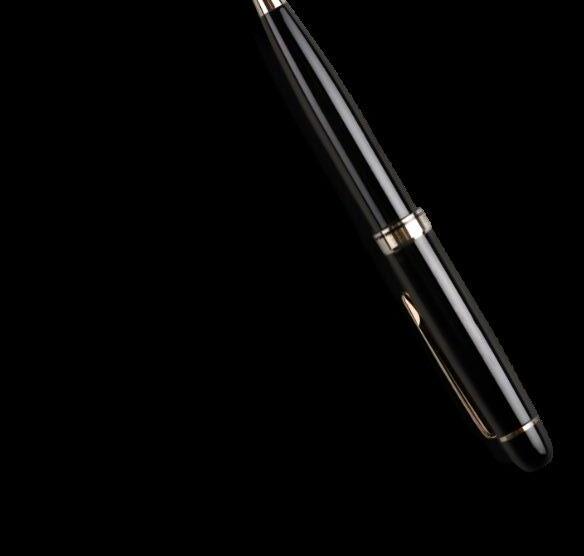
Put in mind of his own father and moved to tears Achilles took him by the hand and pushed the old king Gently away, but Priam curled up at his feet and Wept with him until their sadness filled the building.
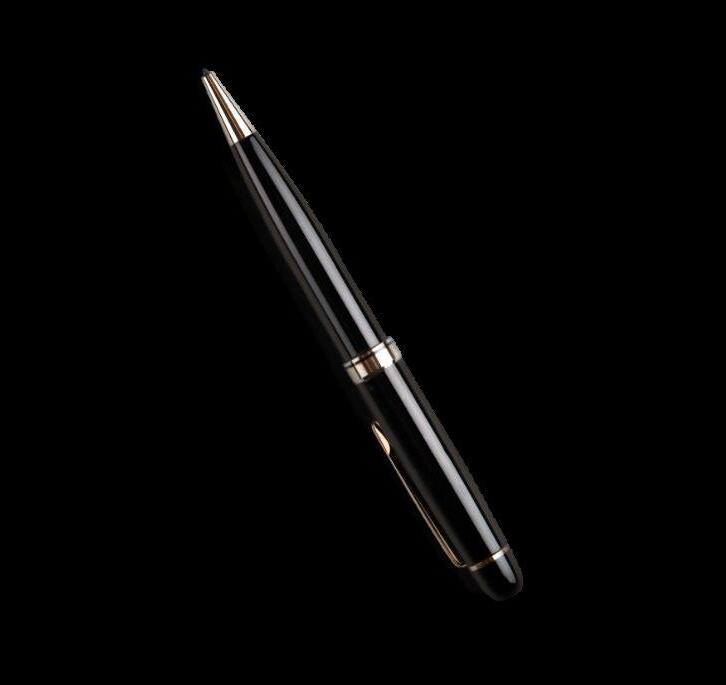

Taking Hector’s corpse into his own hands Achilles Made sure it was washed and, for the old king’s sake, Laid out in uniform, ready for Priam to carry Wrapped like a present home to Troy at daybreak.
When they had eaten together, it pleased them both To stare at each other’s beauty as lovers might, Achilles built like a god, Priam good-looking still And full of conversation, who earlier had sighed:
‘I get down on my knees and do what must be done And kiss Achilles’ hand, the killer of my son.’
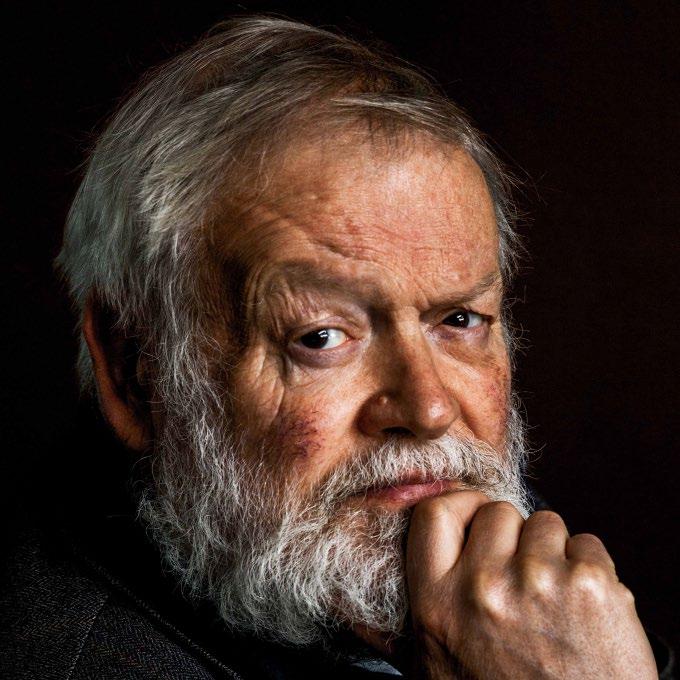


A P R I L 2 4 - M A Y 5
L Y R I C T H E A T R E
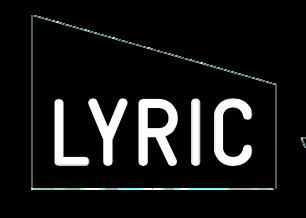
Sir Bruce Robinson (Chairman)
Kirsty Black
Hannah Crowdy
Paul Hayes
Jean Horstman
Mike Mullan
Dr Mark Phelan
Rosie Timoney
Louise Warde Hunter
Head of Production
Adrian Mullan
Production Manager
Arthur Oliver-Brown
Assistant Production Manager Fergal Lonergan
Company Stage Manager
Aimee Yates
Casual Scenic Carpenter
Finn Steadman
Casual Workshop Assistants
Conor Barbour
Phelan Hardy
Acting Head of Creative Learning
Erin Hoey

Digital Marketing Officer
Beverly Steele
Development Officer
Ben McDaid
Annemarie Langan
Shane Lunn
Ross McDade
Sheila Murphy
Danny O’Shea
James Shortt
Adrian Wall
AGREEMENT / 09 - 30 MARCH 2024 / LYRIC THEATRE PRODUCTION
Samantha Duff
Scott English
Harrison Gordon
Marina Hampton
Teresa Hill
Lauren Hutchinson
Chris Kane
Megan
Greta
Megan
Shannen
Carley
